Between the Lines
In Between Times
Leipzig Book Fair 2023
Literature from Southeast Europe
#lbm23 #traduki #zeilenzeiten
The Leipzig Book Fair 2023 takes place from 27-30 April 2023.
TRADUKI has prepared fascinating talks with authors and experts in Leipzig: on different stages at the book fair, at the UT Connewitz and at Suedbrause – bei Freunden.
Our famous Balkan Film Week will take place as usual in the weeks leading up to the book fair.
Programme
-
Thursday, 27 April 2023
-
Save the date!
-
Through books, translations, residency programmes and numerous other literary projects, TRADUKI connects Southeast Europe with German-speaking countries and also with its Southeast European neighbours. In recent years, an intensive and diverse exchange has developed: between languages and literatures, readers and publishers, between the literary scenes in fourteen European countries.
The foreign ministries in Berlin and Vienna are among the co-founders of this public-private venture.
Ralf Beste and Christoph Thun-Hohenstein, representatives of the Federal Foreign Office and the Austrian Foreign Ministry, who shape the respective foreign cultural policy in their respective houses, discuss with the author Ana Marwan and the Belgrade-based translator and publisher Bojana Denić how cultural policy cooperation can be further developed.
Co-Organiser: Austria Guest of Honour Leipzig Book Fair, Federal Foreign Office and BMEIA
-
The young artistic form of “film poems”, moving between between literature and film, will be shown with examples and discussed in a panel discussion.
A cooperation of the Liechtenstein Cultural Foundation with TRADUKI and Austria Guest of Honour Leipzig Book Fair 2023.
-
A talk with four Albanian writers: Flogerta Krypi, Loer Kume, Ervin Nezha and Andreas Dushi. All four have received several accolades and prizes for their writing over the years.
-
What does the European literary landscape look like when we consider translation and who is missing from this map? The so-called “small” languages still have little presence in the larger language areas and their perspectives are often a blank space in the diversity of Europe. After taking stock of the current situation, the question will be what can be done to bring smaller languages and their literatures into focus, not least to enrich the German-language book market.
Organiser: IG Übersetzerinnen / Übersetzer
Co-Organiser: TRADUKI -
Poetry has a special place in Slovenian literature. Three renowned Slovene poets, Miljana Cunta, Cvetka Lipuš and Uroš Prah, will present their new German translations in conversation with Erwin Köstler: Weggehen für Anfänger (Otto Müller Verlag, 2023, translated by Klaus Detlef Olof), Tagesgedichte (Edition Thanhäuser, 2022, translated by Matthias Göritz and Amalija Maček) and Erdfall (Luftschacht Verlag, 2023, translated by Daniela Kocmut).
Organiser: Slovenian Book Agency JAK
Co-Organiser: TRADUKI -
The short story collection “Notizbuch der Liebe” by the young Kosovar author Shpëtim Selmani was published by Parasitenpresse in 2021 (translated from Albanian by Zuzana Finger). In his prose snippets, Selmani writes about everyday life, encounters and relationships; but he also reflects on literature and world events, nationalism, materialism and other -isms. Above all, however, he writes about the one great love.
Selmani was awarded the European Union Prize for Literature in 2020.
Organiser: National Library of Kosovo
Co-Organiser: TRADUKI -
He serves the USSR with more fervour than the Soviet leaders themselves, said writer Georgi Markov about Todor Zhivkov, Bulgaria’s head of state from 1954 to 1989. Serbia, in turn, then part of Yugoslavia, broke with the Soviet Union shortly after the Second World War. Meanwhile, Moldova only declared its independence in 1991. But how do these countries’ relationship with Russia look today? As different as they are, what these countries currently have in common is that they are subject to Russian influence – culturally, politically, and economically. In all three of them, pro-Russian forces define themselves as decidedly anti-European. What does this mean in the different national contexts and how can European-oriented forces deal with it?
The discussion will be in English.
Co-Organisers: Debates on Europe, Ministry of Culture of Romania
-
-
Friday, 28 April 2023
-
The second novel by the Slovenian-Austrian Ingeborg Bachmann Prize winner Ana Marwan is a feast for lovers of literature and language games. “Verpuppt” (Otto Müller Verlag, tr: Klaus Detlef Olof) tells the story of Rita and Jež (hedgehog), but the secret protagonist of the book is language itself: “Verpuppt” turns out to be a book about storytelling and the question of what we actually mean when we speak of reality? The book is a great game with small (and big) words: their structure, their meaning and their sound.
Co-Organiser: Guest of Honour Austria Leipzig Book Fair 2023
-
Albania has officially been an EU candidate country since 2014, accession negotiations were opened in July 2022. So, we are nearly there? The Albanian, Germany-based author and journalist Lindita Arapi (“Albanische Schwestern”, tr: Florian Kienzle) talks to Vedran Džihić, Senior Researcher at the Austrian Institute for International Politics and Lecturer at the University of Vienna, about Albania and its place in Europe. What sort of life can one plan while waiting in ‘Europe’s antechamber’? And which promises should and can one believe?
-
A cooperation event of ‘meaoiswiamia’ and TRADUKI and the ‘Year of Austrian Literature’ of the BMEIA. Translating has become her ‘main language’, writes author and translator Mascha Dabić in her text ‘Clenched Teeth’. Mascha Dabić, who lives in Vienna and was born in Sarajevo, is one of the most renowned translators in Austria: she translates from Serbian, Bosnian, Croatian, English and Russian. What is the importance of translation in Austria? And for which languages is Austria an important “transfer hub”? The fact that Dževad Karahasan or Drago Jančar, for example, found their way to the German-speaking public via Austria is no coincidence, but is due to the geographical location of the country, its history and the fact that Austria itself is a multilingual country: there are six autochthonous ethnic groups alone: Slovenian, Burgenland-Croatian, Czech, Slovakian, the ethnic group of the Roma and Sinti, and Hungarian. A guest of honour event at the Book Fair is always an attempt at translation. This event hopes to make the diversity of Austria visible.
A cooperation of Guest of Honour Austria Leipzig Book Fair 2023, IG Autorinnen Autoren, TRADUKI and BMEIA
-
The collapse of Yugoslavia also meant the disintegration of many individual biographies, which no longer unfolded in linear fashion, but each became a mosaic of fragments that were constantly reassembled. One of these life stories is told in this book, whose title inevitably evokes the image of a powerful lone fighter. Nostalgically, but without unnecessary exaggeration, Olja Knežević takes us from the former Titograd to Belgrade, on to London and finally back to present-day Podgorica; with sex, drugs and war as background music. The women in the protagonist’s life fall ill, age and die, but it is precisely they who give her strength and are her role models, whereas the men, even as marginal figures, just wear her out.
Organiser: eta Verlag
Co-Organiser: TRADUKI -
The talk will focus on how war shapes graphic novels and how everyday stories of love and relationships suddenly appear in a different context. Slovenian artist Samira Kentrić and Liechtenstein comic artist and illustrator Meikel Mathias will discuss these issues with publisher and author Anne König and Samira Kentrić’s translator Barbara Anderlič.
A cooperation of the Liechtenstein Cultural Foundation with TRADUKI and Austria Guest of Honour Leipzig Book Fair 2023.
-
Die Einstellung (Suhrkamp, 2022) is the latest novel by Austrian author Doron Rabinovici.
With wit, irony and a penchant for outlandish imagination, Doron Rabinovici’s latest novel tells of an increasingly polarised present and increasingly divided society. It is about the relativisation of facts, the attraction of authoritarian figures, the power of images. It is about the struggle of a populist against a photographer who knows very well that every shot is testimony to an attitude.
Organiser: TRADUKI
-
In Georgi Gospodinov’s novel, the narrator meets Gaustine, a flâneur who travels through time. In Zurich, Gaustine opens a “clinic for the past”, a facility that offers Alzheimer’s patients a very special treatment: Each floor is modelled on a particular decade. Patients can find comfort there in their fading memories. But suddenly, more and more healthy people are interested in being admitted to the clinic, hoping to escape the horrors of the present. And eventually it is even entire countries that follow Gaustine’s idea of past spaces, wanting to return to earlier times.
The novel Zeitzuflucht was published by Aufbau Verlag in 2022 and was translated from the Bulgarian by Alexander Sitzmann.
Organiser: TRADUKI
Co-Organiser: Ministry of Culture of the Republic of Bulgaria
-
One of the surprising features of the last hundred years is how often philosophers draw on examples from popular culture (crime novels, popular films and television series from Hitchcock to The Matrix, from The Wire to Mad Men, from video games to Facebook) to formulate insights into fundamental questions such as freedom in the contemporary world, the status of reality, social control and the transformation of public space. The question is whether this reference to popular culture is really just a means of popularising insights? What if it expresses the fact that today’s popular culture registers subtle changes that elude high culture and standard social analyses? The talk will be held in English without interpretation.
A cooperation between TRADUKI and the Slovenian Book Agency JAK
-
An event with the Romanian author Mircea Cărtărescu, who is considered a secret candidate for the Nobel Prize. In his latest collection of stories “Melancolia” (t: Ernest Wichner), the author is concerned with existential loneliness. Children and adolescents are his protagonists, they penetrate unknown, frightening and at the same time fascinating terrain. The author operates virtuously with modern and postmodern narrative styles, with elements of genre literature from horror to science fiction, from religious edification literature to scientific knowledge on butterflies.
Co-Organiser: Ministry of Culture of Romania
-
Lana Bastašić and Faruk Šehić talk about their new books: “Mann im Mond” by Bastašić (tr: Rebekka Zeinzinger) and “Uhrwerksgeschichten” by Šehić (tr: Elvira Veselinović). They will discuss the post-Yugoslav literary scene and their ‘new life’ in Berlin as DAAD scholarship holders. The conversation will take place in English without interpretation, the book excerpts will be read in German translation.
Co-Organiser: S. Fischer Verlag
-
-
Saturday, 29 April 2023
-
20 January 2022 marked the 80th anniversary of the infamous Wannsee Conference with its fatal decision on the “Final Solution of the Jewish Question”. In the Balkans, more than eighty percent of the Jewish population was killed during the Second World War. The people who bore witness to this horror are becoming fewer and fewer. So it is literature that recalls their fate. In the post-Yugoslavian, indeed, in the entire Southeast European literary space, important and moving texts have been written about what happened, among others by David Albahari, Đorđe Lebović and Judita Šalgo. In a discussion moderated by the Israeli-Austrian author and historian Doron Rabinovici, the author and expert on Jewish culture, Marko Dinić, will present these works. Dr. Martina Bitunjac (Moses Mendelssohn Centre for European-Jewish Studies) will explain and reflect on their historical background.
-
Ioana Nicolae writes poetry and prose. Her works are published in German translation by Pop Verlag. Nadya Radulova is a poet; the bilingual poetry collection “Kleine Welt, große Welt” is her first work in German translation, published by eta Verlag in March 2023.
Organiser: eta Verlag, Ministry of Culture of Romania
Co-Organiser: TRADUKI -
Poetically, with tenderness, Tatjana Gromača speaks of her mother’s break-down during the economic crisis, ferocious nationalism and the war in 90s Croatia. She combines the diagnosis of her mother’s and parents’ condition with harsh and ironically funny descriptions of a “sick” society destroyed by civil war. In Croatia, Gromača was awarded the Vladimir Nazor Prize and the Jutarnji Award for the novel of the year 2013.
Will Firth, who translated the story collection The Divine Child into German and English, talks to the author. The German edition was published by Stroux Edition in 2022.
Organiser: TRADUKI
Co-Organiser: Ministry of Culture of the Republic of Croatia, Stroux Edition -
Poetry is freedom. Poetry is rebellion. And freedom and rebellion are what Slovenian punk has combined into something unique. On the occasion of the publication of the German translation of the anthology (Verlag Heyn, 2023), Slovenian poet and editor, Esad Babačič, and Croatian poet Marko Pogačar will talk about Slovenian punk poetry. The discussion will be moderated by Miha Kovač.
Organiser: Slovenian Book Agency JAK
Co-Organiser: Ministry of Culture of the Republic of Croatia, SKICA BERLIN, TRADUKI -
Ag Apolloni (1982) is a well-known name in Kosovar literature. He writes novels, poetry, essays and plays. His most recent novel, entitled Kësulëkuqja (përrallë për të rritur) – in German “Red Riding Hood. A Fairy Tale for Adults” – was published in 2022. The novel, on the surface a love story between Lorita, the actress, and Max, the author, is about war, violence and war traumas.
Organiser: National Library of Kosovo
Co-Organiser: TRADUKI -
In the short film programme PRESTO, the audience will get an insight into the most diverse aesthetic positions of Austrian film poems: filmed texts are juxtaposed with rarely shown video poems, i.e. works of art created with cinematic means. On the third and final evening, Andrea Grill and Barbara Anderlič will be our guests. They will discuss the possibilities of different media.
A cooperation of the Liechtenstein Cultural Foundation with TRADUKI and Austria Guest of Honour Leipzig Book Fair 2023.
-
The one and only BALKANNACHT. Once again, TRADUKI presents an exciting mix of literary voices from Southeast Europe – together with the rocky-folky-poetic music of Jelena Popržan.
Co-Organisers: Ministry of Culture of Romania, Voland & Quist
-
-
Sunday, 30 April 2023
-
In the garden of Café Suedbrause, TRADUKI is hosting a veritable “Lyrikbrause” this year, with tidbits on the table and lyrical delicacies from Germany/Kosovo, Croatia and Montenegro on stage.
-
The experience of locked gates is shared by many people from the former Eastern Bloc. Arian Leka, born and raised on the Adriatic, remembers his childhood and youth behind locked borders and persistently pursues the question of how the once free sea became a forbidden zone. To do so, he confronts his experiences with Albanian legends and history. The trigger for the work on the texts in this book were the numerous deaths during the flight across the sea towards Italy, when after the fall of Enver Hoxha’s regime the gates to Europe opened for the citizens of Albania, but Europe sealed itself off against the refugees. For Arian Leka, confinement and exclusion are equally unbearable, and his empathy has long since extended not only to the Albanian victims, but to all those who drowned while fleeing across the Mediterranean. At the same time, he deals with his country’s recent past, which is still a burden for Albania today due to the belated discussion of the crimes of Enver Hoxha’s regime.
Organiser: TRADUKI
Co-Organiser: Goethe Zentrum Tirana
-
Between the Lines
In Between Times
Cue: TRADUKI – Southeast Europe Takes the Stage! At this year’s Leipzig Book Fair, TRADUKI will be presenting authors from Southeast Europe in almost 20 events at the traditional “Café Europa” and, for the first time, at the TRADUKI Kafana. Under the title “Between the Lines – In Between Times”, our programme is dedicated to the hidden sides and moments of life, to the ambiguity of our experiences and perspectives, and the diversity of different ways of life. It is vital to look closer and strike up open dialogues. Authors and their moderating hosts will be looking closer at the breaks, leaps and turns in the lifelines of people and countries. Childhood memories will get reinterpreted anew and space will be made for the past in the personal and political future. The TRADUKI Programme 2023 in Leipzig wants to make the spaces “in between” more visible and tangible, because it is precisely here that decisive events often take place.
Participants
Leipzig Book Fair 2020-2022
The full TRADUKI programme at the Leipzig Book Fair in the years 2022, 2021 and 2020 can be viewed here:
Between the Lines
In Between Times
Cue: TRADUKI – Southeast Europe Takes the Stage! At this year’s Leipzig Book Fair, TRADUKI will be presenting authors from Southeast Europe in almost 20 events at the traditional “Café Europa” and, for the first time, at the TRADUKI Kafana. Under the title “Between the Lines – In Between Times”, our programme is dedicated to the hidden sides and moments of life, to the ambiguity of our experiences and perspectives, and the diversity of different ways of life. It is vital to look closer and strike up open dialogues. Authors and their moderating hosts will be looking closer at the breaks, leaps and turns in the lifelines of people and countries. Childhood memories will get reinterpreted anew and space will be made for the past in the personal and political future. The TRADUKI Programme 2023 in Leipzig wants to make the spaces “in between” more visible and tangible, because it is precisely here that decisive events often take place.
For us, the following question is obvious: Is Southeast Europe perhaps itself such an “in-between”? Not yet here – but neither there? Is it waiting in the antechamber of Europe? One gets the urge to cry out loud: Come on then, when will this (his)story finally move ahead and move along?!
Among our authors are last year’s Ingeborg Bachmann Prize winner Ana Marwan, who writes in Slovenian and German, the Romanian author and winner of the 2015 Leipzig Book Prize for European Understanding, Mircea Cărtărescu, the Bosnian Lana Bastašić, who is currently a DAAD Berlin Artists-in-Residence Programme Fellow, and the Slovenian poet Anja Zag Golob. In addition, TRADUKI will also present numerous new literary voices and discoveries of 2023.
But TRADUKI is no longer just literature, it is also film and music. The carefully curated film programme of the Balkan Film Week focuses on the act of “disappearance” and is in line with this year’s TRADUKI motto. The eight films deal with immigration and emigration, with life between different worlds, with the slow crossing over and growing into a new world. How can this state of being – in the here and the there and the in-between – succeed, without the individual losing themselves or even disappearing? In the Slavic languages, verbs have a perfect and an imperfect form with which one can express the completion or non-completion of an event. Izginiti is not the same as izginjati. Both can be translated into German with the word to disappear, but izginiti means: something has disappeared, is no longer there. Izginjati, on the other hand, represents a slow, steady, sometimes all the more painful act of vanishing: without a clear break and clear boundaries, the past is always snapping at the heels of the present.
For now, stay on TRADUKI’s heels and visit us in Hall 4 / D407, at Café Suedbrause – bei Freunden and at the UT Connewitz cinema, where – after an eventful day at the fair – we invite you to join us on Saturday evening for the legendary Balkannacht: Literature from the countries of the Western Balkans and music by Novi Sad-born and Vienna-based composer and violist Jelena Popržan will play us out and into the night.
In 2023, TRADUKI cooperates in many ways with this year’s Guest of Honour, Austria. The country presents itself under the title “meaoiswiamia” (more than just us), a sentiment that we happily join. And TRADUKI partner Slovenia, the Guest of Honour at the upcoming Frankfurt Book Fair in autumn is also being given its due in this programme.
Your TRADUKI Team: Angelika, Barbara, Ljubica, Andrej, Marija, Radmila
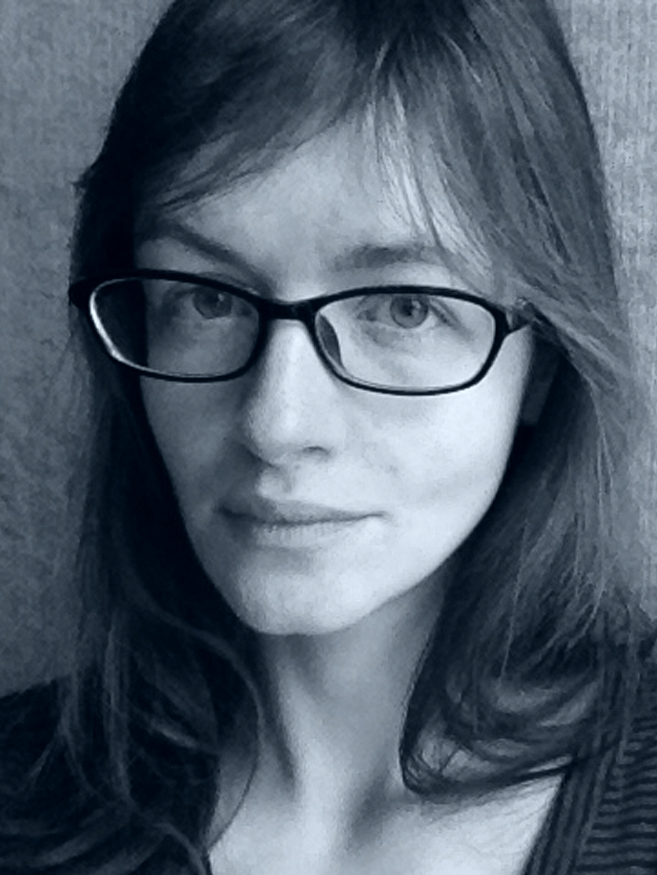
Barbara K. Anderlič
Barbara Anderlič, born in Ljubljana in 1984, has a degree in translation studies. In 2014, she received the exil-DramatikerInnenpreis of the Wiener Wortstaetten for her play Von Schablonen und Romanfiguren. In 2015, she won the ITI Global Playwriting Contest with A Continental Divide. Her translation of Samira Kentrić’s Balkanalien: Erwachsenwerden in Zeiten des Umbruchs was published by Jacoby & Stuart in 2021, followed by Jurij Devetak’s graphic novel Nekropolis (Schaltzeit Verlag), based on Boris Pahor’s novel of the same name, in 2023. As an interpreter, Anderlič has had the privilege of lending her voice to Graciela Iturbide and Mojca Kumerdej, among others. In 2012, she was a member of the Standard audience jury at the Viennale film festival in Austria.
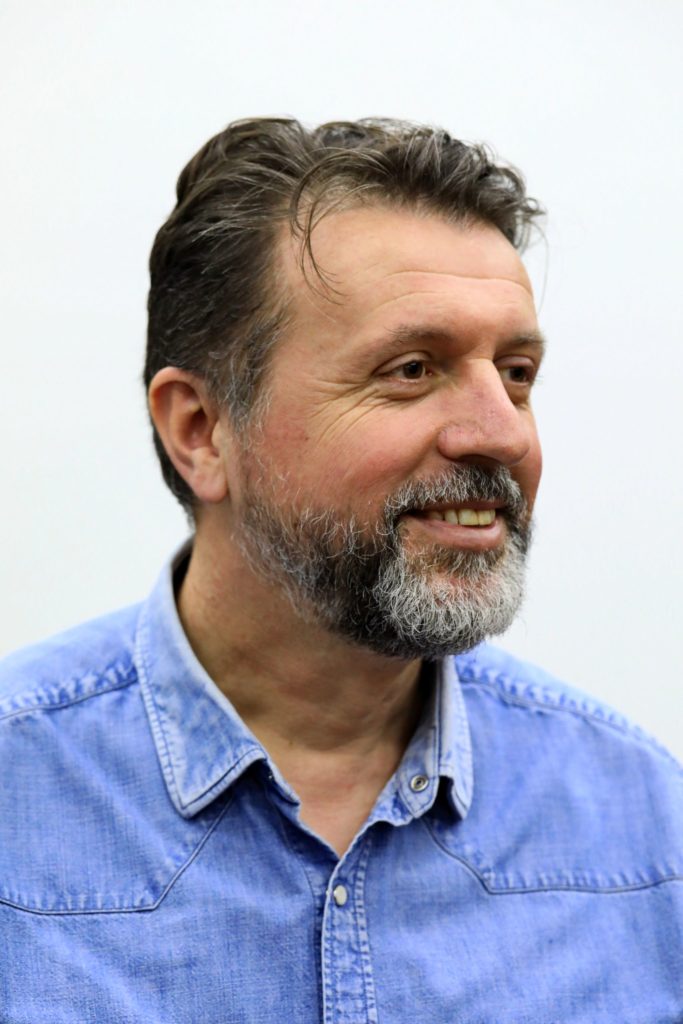
Shkëlzen Rexha
Ag Apolloni
Ag Apolloni, born in Kaçanik, Kosovo, in 1982, is a Kosovar writer, poet, playwright and essayist. He writes in Albanian. Apolloni is a professor of literature at the University of Prishtina. His literary publications are characterised by dramatic and philosophical dimensions; they reflect his critical attitude towards history, politics and society.
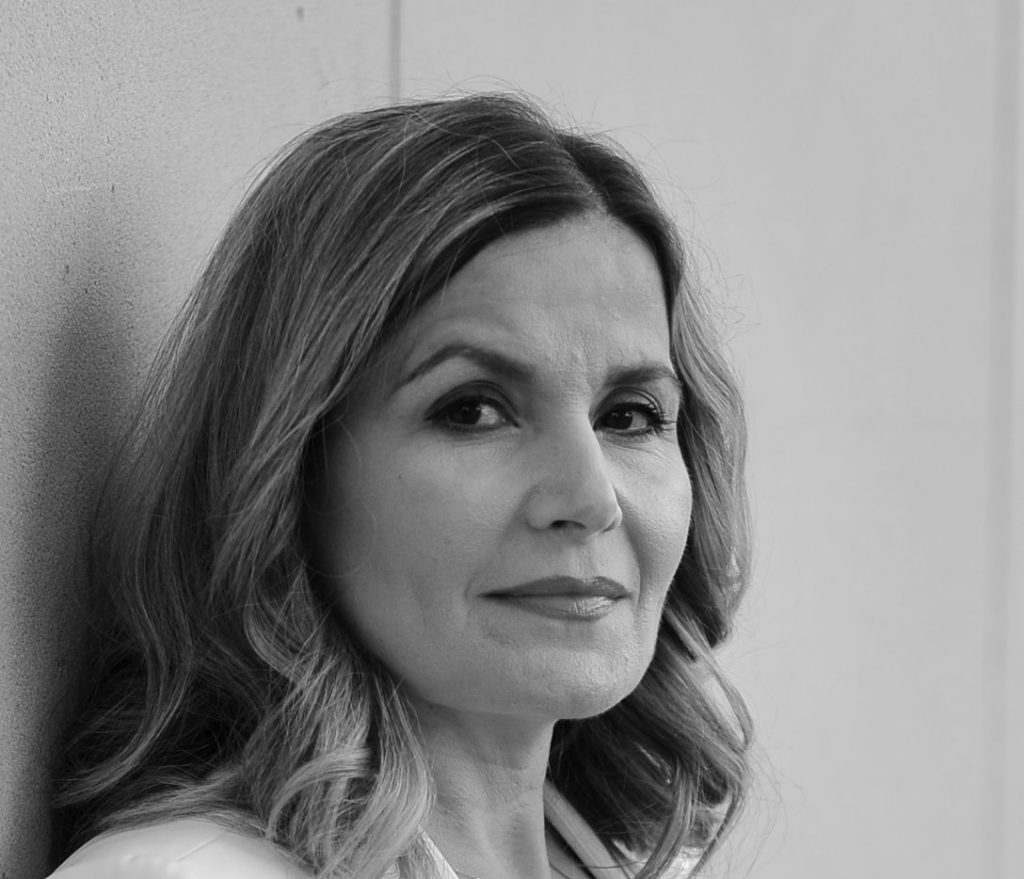
Stephan Boltz
Lindita Arapi
Lindita Arapi, born in Albania, belongs to the circle of the so-called Albanian literary avant-garde. She publishes poetry collections, novels, essays and journalistic pieces. Her first novel, Schlüsselmädchen, was awarded the Book of the Year Award by Kult Academy in Albania and translated into German. Her most recent novel, Die Eingemauerte, is currently being translated into German and is forthcoming in Weidle Verlag. In addition to her writing, Lindita Arapi works as a freelance radio editor for Deutsche Welle (Bonn) and translator.
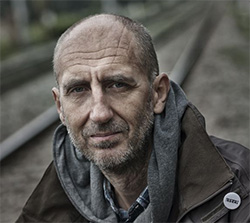
Esad Babačić
Esad Babačić, writer and the singer of the legendary punk band Via ofenziva, is one of the best-known and most original representative of the Slovenian literary scene. He is author of numerous books and poems, for which he received many awards. In 2003, he received the Hörbiger Prize in Austria for his poem Donava. Translations of his text have been published in all major European languages, among others in the magazines Die Batterie, Literatur und Kritik and Edinburgh Review.
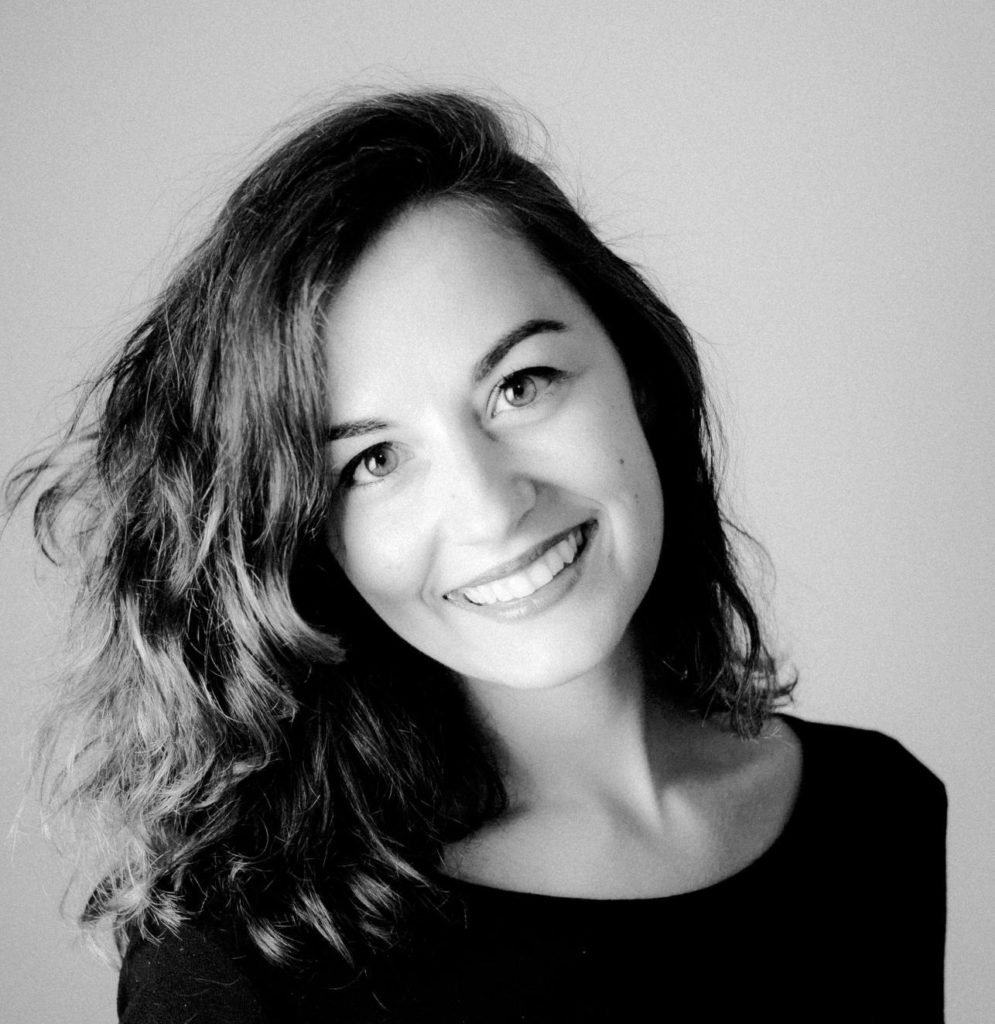
Radmila Vankoska
Lana Bastašić
Lana Bastašić, born in 1986 in Zagreb, Croatia, to Serbian parents, grew up in Bosnia after the break-up of Yugoslavia and most recently lived for many years in Barcelona. With her debut novel “Catch the Rabbit” she was shortlisted for the NIN Award, Serbia’s most prestigious literary prize, and in 2020 she received the European Union Prize for Literature for the novel.

Agata Szymanska-Medina
Elona Beqiraj
Elona Beqiraj lives and works in Berlin. She gives workshops on right-wing violence in Germany and has led the art project “Weil wir nicht vergessen” (Because we won’t forget) at the Maxim Gorki Theatre, which is dedicated to a dignified culture of remembrance. In her book of poetry “und wir kamen jeden sommer”, published by Resonar Verlag in 2019, she addresses the question of belonging and not belonging in Germany. In addition, she gives writing workshops that are exploring these topics.

Ralf Beste
Ralf Beste, born in 1966 in Witten, studied history in Bochum, Bielefeld and Baltimore (Master of Arts, Johns Hopkins University; Magister Artium, University of Bielefeld). From 2001 to 2014 editor of SPIEGEL. 2014 to 2016 Deputy Head of the Planning Staff at the Federal Foreign Office; from 2016 to 2017 Commissioner for Strategic Communication and from 2017 to 2019 Head of the Planning Staff at the Federal Foreign Office. From 2019 to the beginning of 2022, Ralf Beste was Ambassador of the Federal Republic of Germany to the Republic of Austria. He is Head of the Department for Culture and Communication at the Federal Foreign Office.
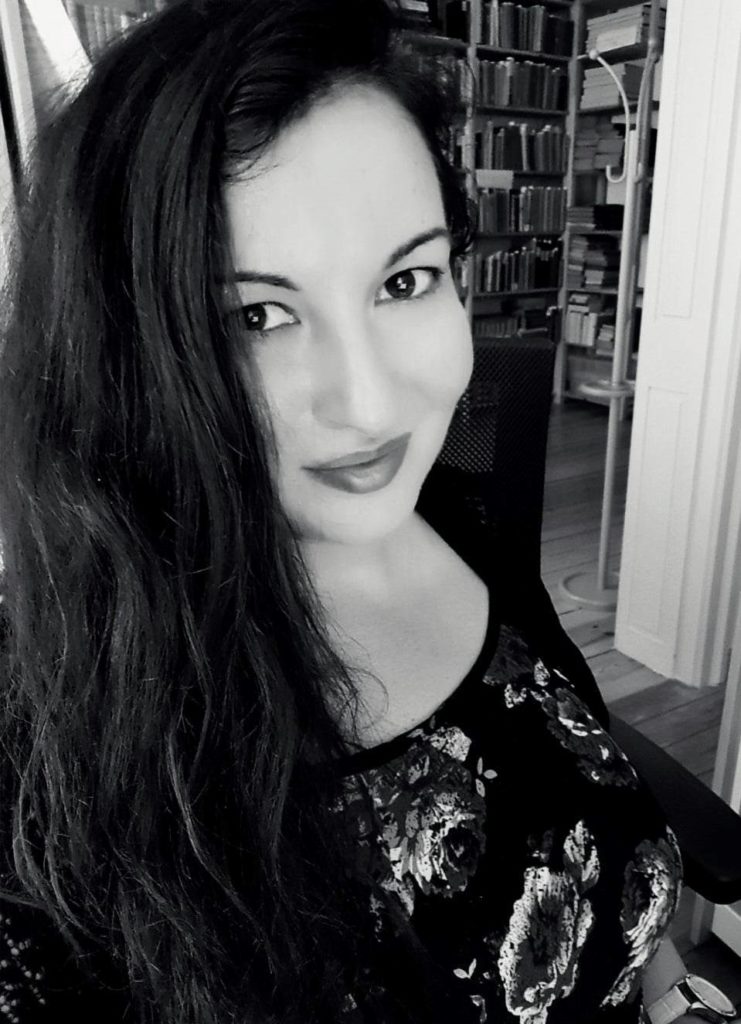
Martina Bitunjac
Martina Bitunjac is a historian and research associate at the Moses Mendelssohn Centre for European-Jewish Studies. She teaches at the Institute of History at the University of Potsdam and is also managing editor of the Zeitschrift für Religions- und Geistesgeschichte. Her research interests include the Second World War and the Holocaust in Southeast Europe, perpetrator research, remembrance culture and Jewish history in the Balkans.
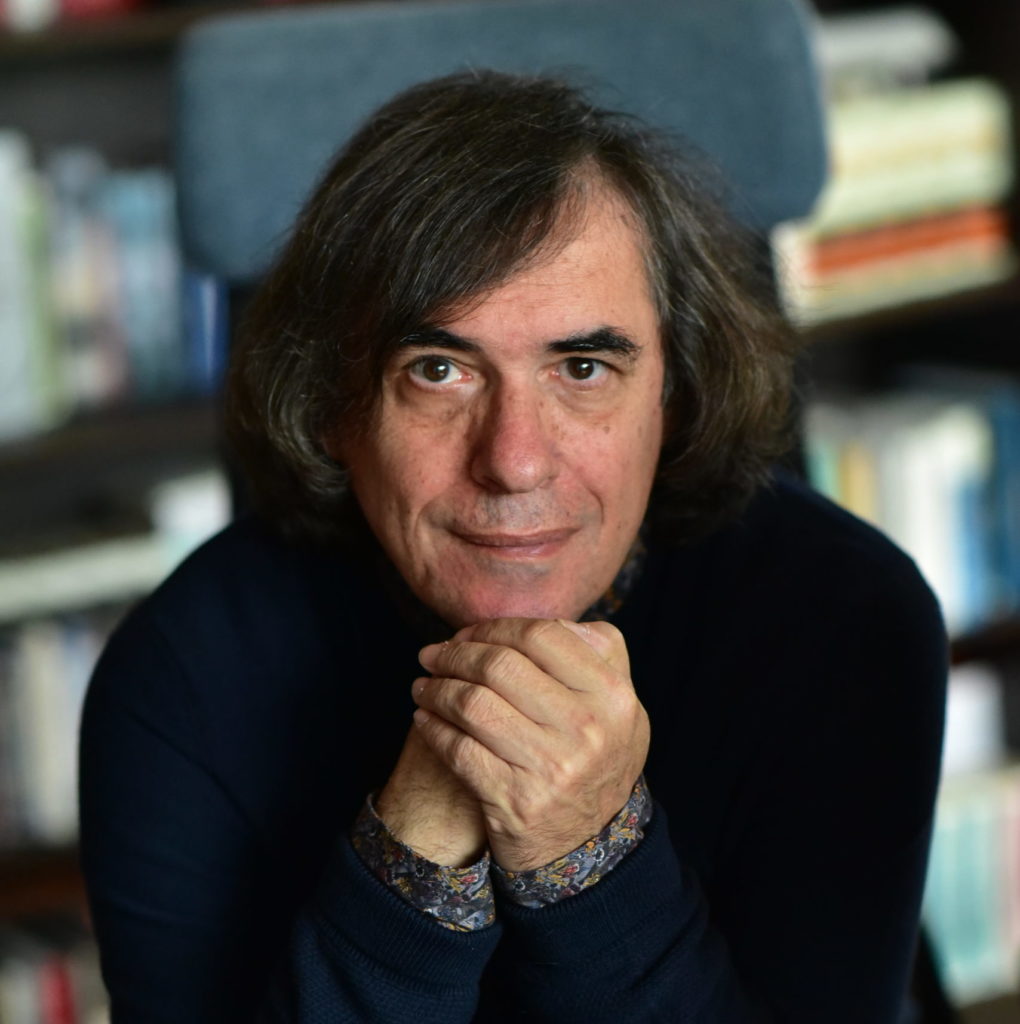
Mircea Cărtărescu
Mircea Cărtărescu was born in Bucharest in 1956. Numerous stays abroad followed, including in Berlin, Stuttgart, Vienna, Florence. He is the recipient of the Leipzig Book Prize for European Understanding (2015), the Austrian State Prize for European Literature (2015), the Thomas Mann Prize, and Premio Formentor (both 2018). His most recent publications in German are the “Orbitor” trilogy (2007 to 2014), the short story collection Die schönen Fremden (2016) and Solenoid (2019) and Melancolia (2022). In 2022 he was awarded the FIL Prize for Romance Languages. He lives and works in Bucharest.
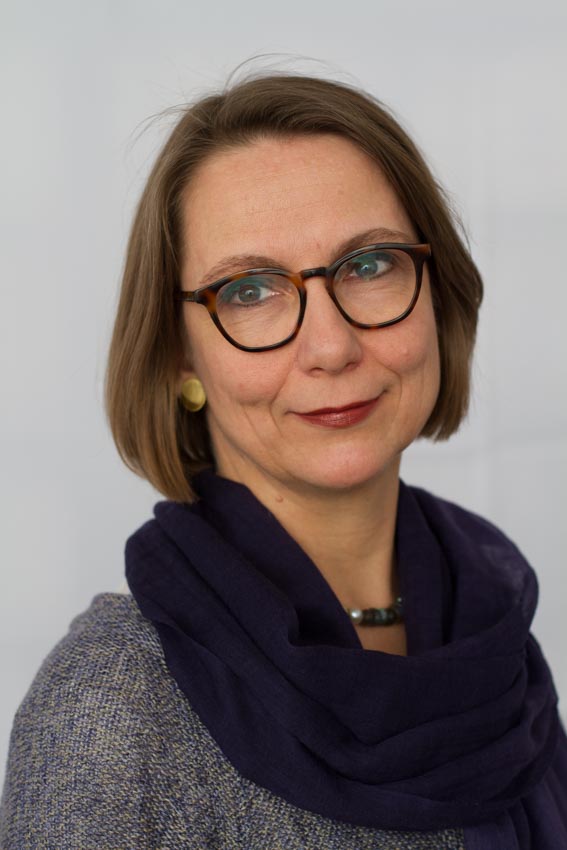
Ekko von Schwichow
Antje Contius
Antje Contius, born in 1966 in North Hesse, is Director of the S. Fischer Foundation since 2008. She studied Slavic studies in Münster, Freiburg, Frankfurt/Main, Moscow, Warsaw and Sofia. As a freelance editor, she worked for publishing houses in Austria, Germany and Switzerland and was particularly committed to Eastern European literature. She also pursued this focus as a consultant for Eastern Europe and the Middle East in the foreign department of the Leipzig Trade Fair and as head of this department from 1995-1998. She joined the S. Fischer Foundation in 2002.
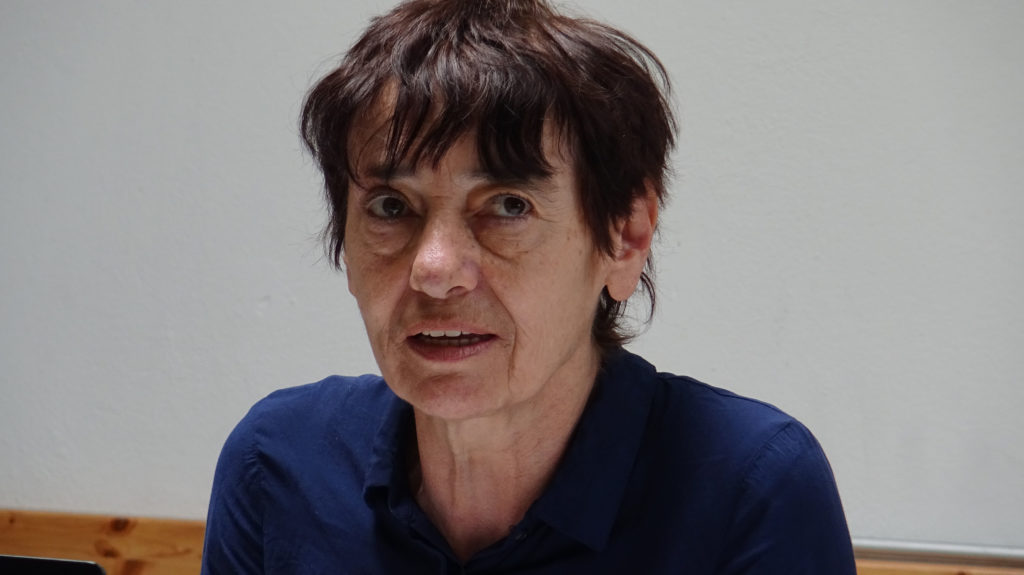
IGUE
Jacqueline Csuss
Jacqueline Csuss has been working as a translator of literature, autobiographies and non-fiction as well as texts for international organisations (from English, Spanish and French) since the 1990s. Her translation of US author Watt Key’s Alabama Moon was nominated for the German Youth Book Award 2010. In 2010, she was awarded the Art Prize of the Republic of Austria. She is a board member of the Interest Group of Literary Translators in Austria and lives in Vienna.
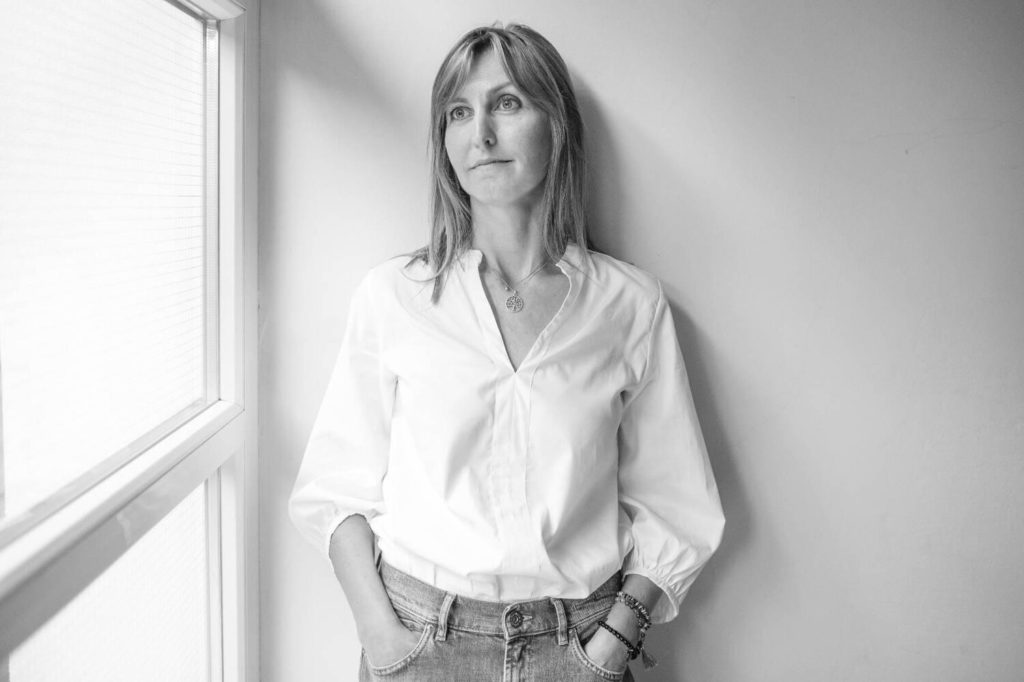
Matej Povše
Miljana Cunta
Miljana Cunta is a poet, translator and cultural manager. She has been the director of the Vilenica and Fabula literary festivals, a guest columnist for the daily newspaper Delo and a mentor for creative writing workshops for disadvantaged marginalised groups. She translates from English and Italian and is the author of three books of poetry. Her poems are available in numerous languages.
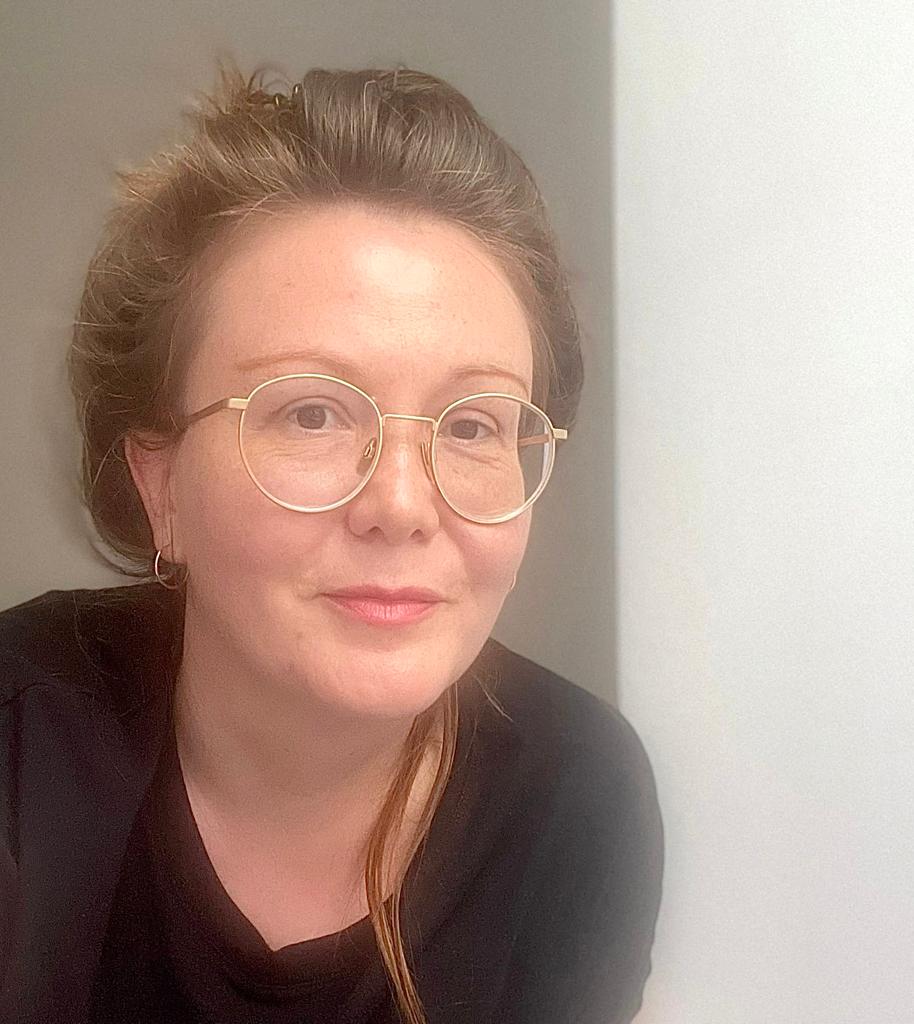
privat
Mascha Dabić
Born in Sarajevo in 1981, studied translation studies (English and Russian), translates literature from the Balkan region. She lives in Vienna and has worked as a journalist on the phenomenon of migration (daStandard.at). She works as an interpreter in the field of asylum and conferences and teaches at the University of Vienna. Her debut novel Reibungsverluste was shortlisted for the Austrian Book Prize 2017; in 2018 she received the Literature Promotion Prize of the City of Vienna.
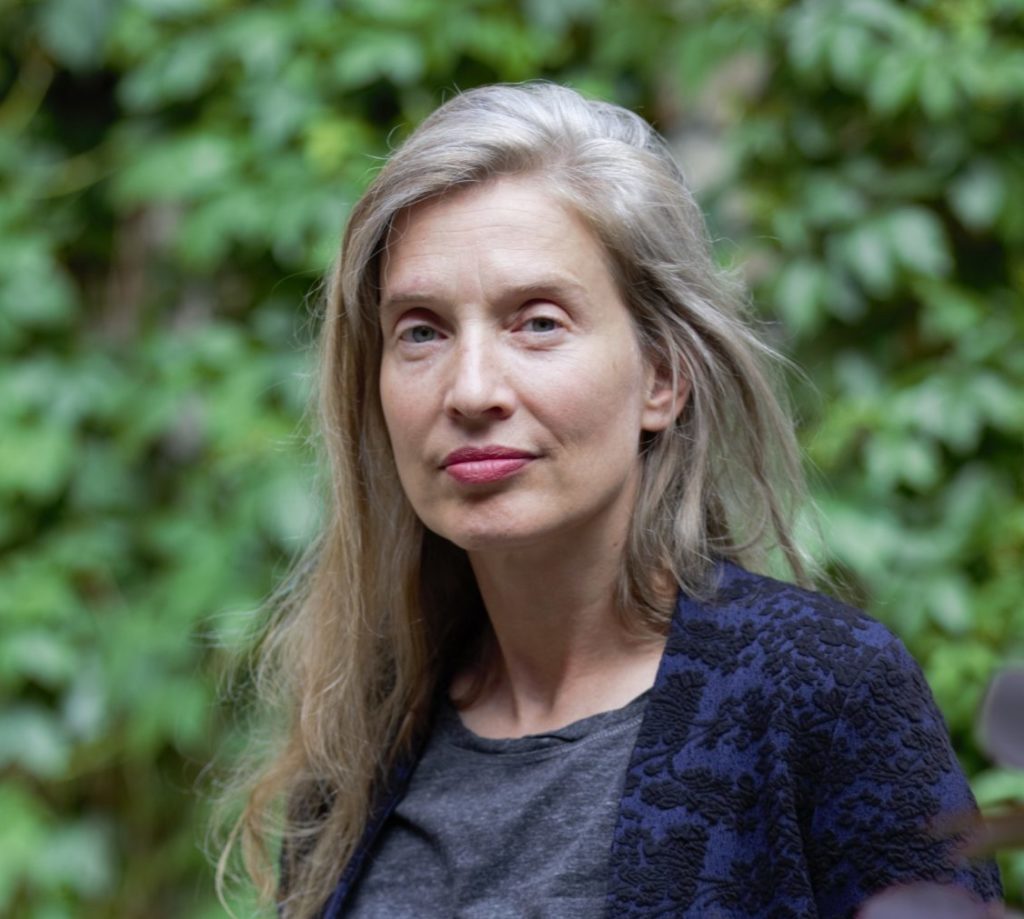
Aleksandar Denić
Bojana Denić
Bojana Denić, born in Belgrade/Yugoslavia in 1974, studied German language and literature at the University of Belgrade. To date, she has translated more than fifty titles of German-language literature, including works by: Clemens Meyer, Wolfgang Hilbig, Anna Seghers, Uwe Johnson, Christa Wolf, Peter Handke, Elfriede Jelinek Thomas Bernhard, Wolfram Lotz and Heiner Müller. Some of the books were published in the small publishing house Radni sto, founded by Bojana Denić in 2017. The publishing house is oriented towards the aesthetic landscape of ‘literature without a country’. She is currently working on translations of Thomas Brasch and Brigitte Reimann.
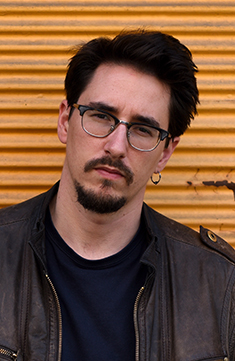
Leonhard Pill
Marko Dinić
Born in Vienna in 1988, is a Serbian author who lives in Austria and publishes in German. Dinić grew up in Belgrade, moved to Austria in 2008 and studied German language and literature and Jewish cultural history in Salzburg. In 2012 he published poetry and prose for the first time in anthologies and journals. He has been the guest of many residencies, including in Brno/CZ, Paliano/IT and Chretzturm/CH and Stadtschreiber in Pfaffenhofen an der Ilm/D, Schwaz/Tyrol and Halle/D. In 2012, his first volume of poetry Namen: Pfade: (Edition Tandem) got published, followed in 2019 with his first novel “Die guten Tage” (Zsolnay).

private
Vedran Džihić
Vedran Džihić is Senior Researcher at the Austrian Institute for International Affairs (oiip) and teaches at Vienna University and the University of Applied Arts Vienna. He is the director of the Center of Advanced Studies Southeastern Europe at the University of Rijeka and is a member of the “Balkans in Europe Policy Advisory Group”. Džihić is the author of numerous books and publications and is active in the realms of policy advisory and public debates. His research focuses on democracy development, nationalism, authoritarianism, EU enlargement and foreign policy, developments in the Balkans and Eastern Europe, protest movements, migration and democracy.
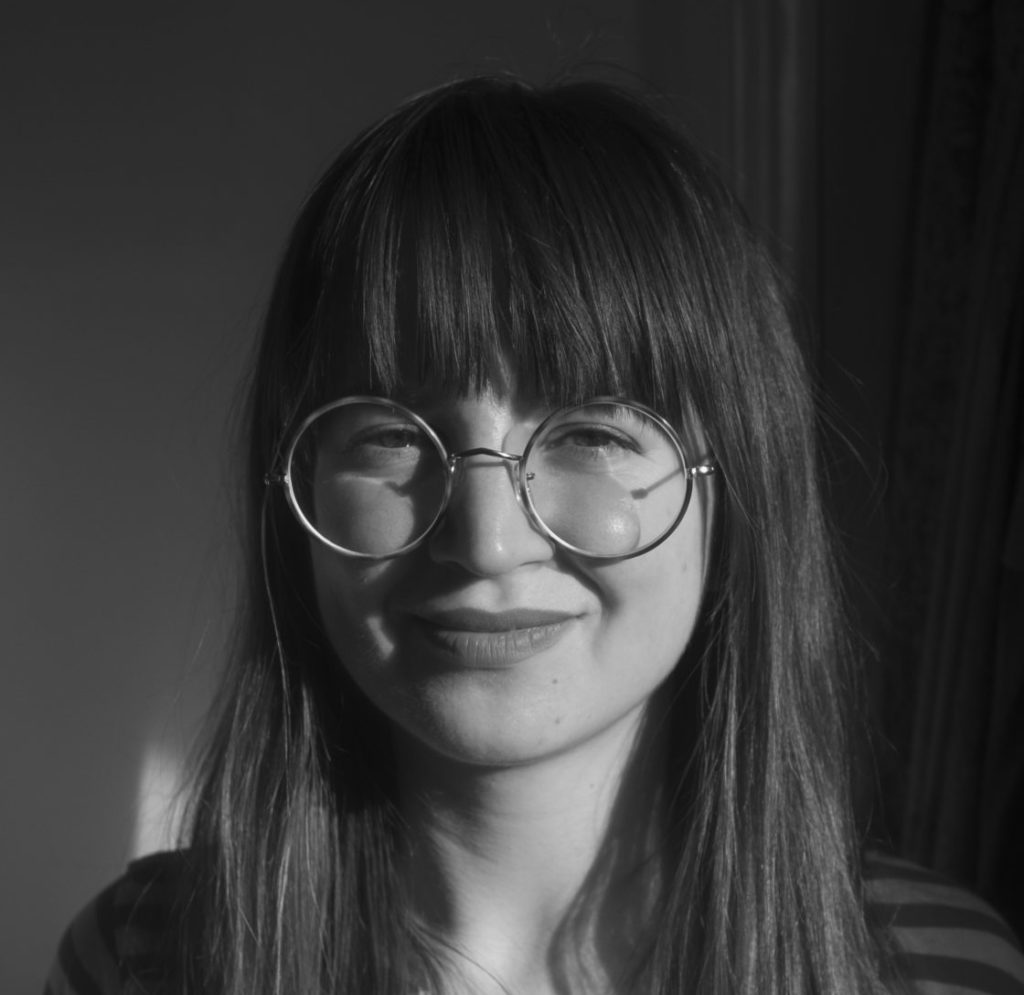
Elena Siretanu
Paula Erizanu
Paula Erizanu (1992) is a Moldavian journalist and writer. Studied journalism at the City University of London and currently lives in Kishinev as a freelancer. Writes for BBC, The Guardian, Financial Times and other political and literature magazines in Romania and Moldova. She has also written non fiction and literature books: „Aceasta este prima mea revoluție. Furați-mi-o!” / „This is my first revolution. Steal it from me!” ( Cartier, 2011), „Ard pădurile” / „Forests are burning”(Cartier, 2021).
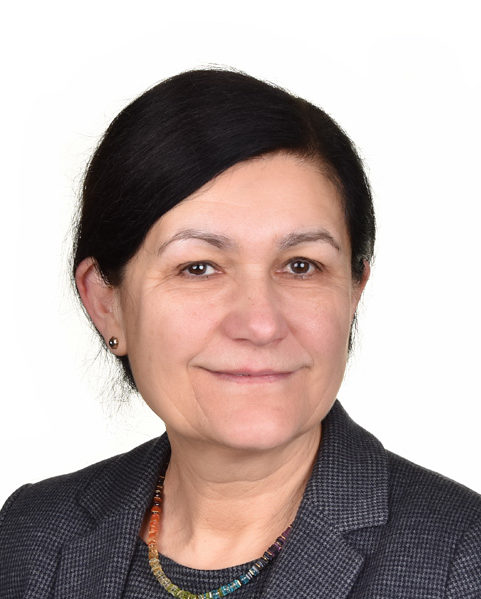
Zuzana Finger
Zuzana Finger, born 1959 in Sala (Czechoslovakia), studied Slavic languages and Balkan studies in Berlin. Since 2010 she is working in a care home for Sudeten Germansn. In 2013, 2014 and 2015 she gave lectures on Albanian studies at LMU München. Zuzana Finger translates from the Albanian, Serbian, Slovak and Czech into German. Her translations include works by Eqrem Basha and Jeton Neziraj.
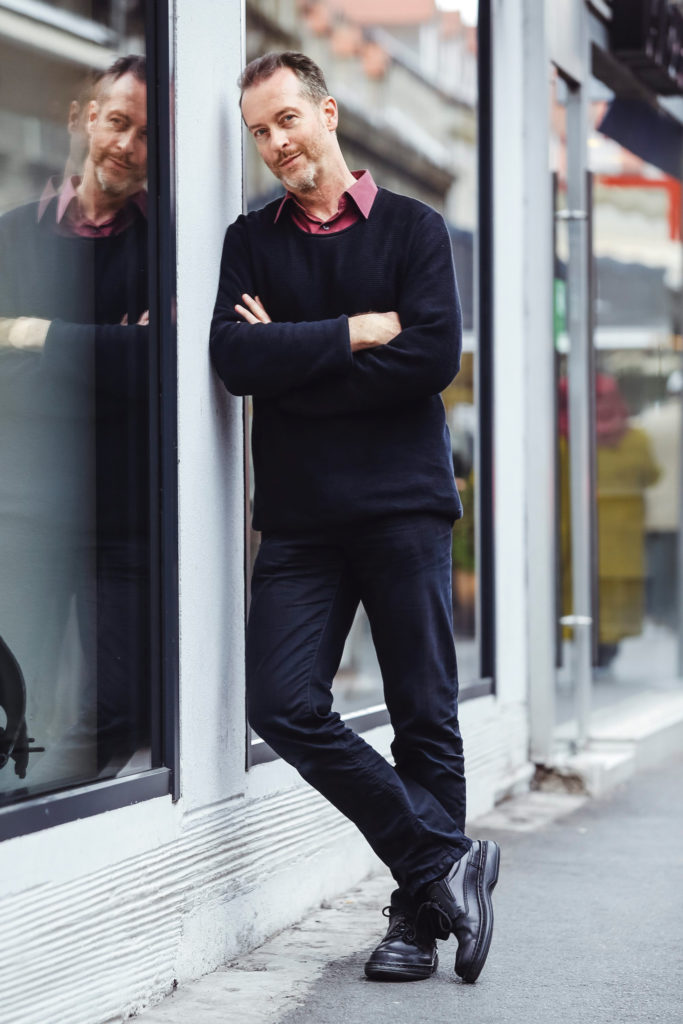
Marko Todorov
Will Firth
Will Firth was born in Newcastle, Australia, in 1965. His focus as a literary translator is on prose from the Serbo-Croatian language and North Macedonia. He studied German and Russian in Canberra, with Serbo-Croatian as a minor subject. From 1988-89 he immersed himself in South Slavic studies in Zagreb, then spent a postgraduate year in Moscow. He has lived in Berlin since 1991 and works as a freelance translator of literary and humanities texts. In 2005-08 he translated for the UN War Crimes Tribunal for the former Yugoslavia. Firth is a member of the VdÜ (Germany) and Translators Association (UK).
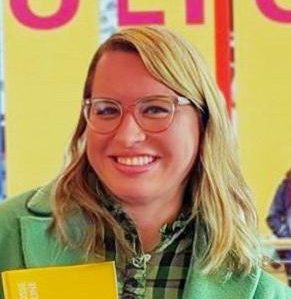
Maja Gebhardt
Maja Gebhardt was born in Sarajevo in 1981 and came to Germany as a refugee in 1992 because of the war in her home country. In 2005, she completed her German and English studies at the LMU Munich with a Magister Artium. Afterwards, she taught German as a foreign language in integration courses and worked as an examiner in the language centre of the association “Hilfe von Mensch zu Mensch”, but also in the Balkan Days team, which she still supports today by moderating the culture programme and organising its literature day. Since 2018, she has been living in Berlin, where she now organises book presentations for the eta Verlag and author talks for the BKS book club, where she also enjoys interpreting and translating from the BKMS languages into German.
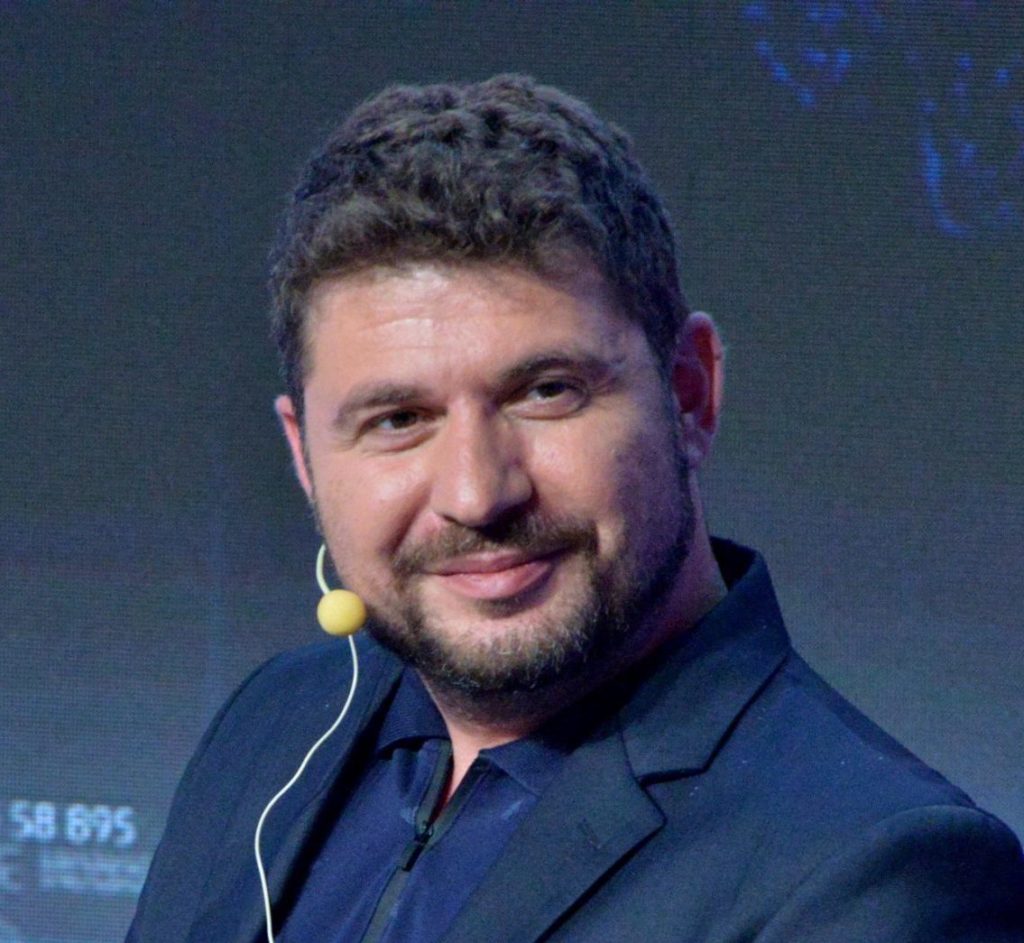
Ognyan Georgiev
Ognyan Georgiev is a long-time reporter and editor of the leading Bulgarian business publication Capital. Currently he is heading Kapital Insights, an English language service and the brand new Plovdiv office, a regional division of Capital in Bulgaria’s second biggest city. Georgiev is a Robert Bosch Stiftung and Fulbright alumni, and spent a year in MIT, researching urban migration. He is the author of “The Grand Return: COVID-19 and Reverse Migration to Bulgaria”, a report produced in partnership with the European Council of Foreign Relations, as well as the follow-up report on the same topic for Bulgaria and Romania, produced in cooperation with the Joint Research Center of the European Commission.
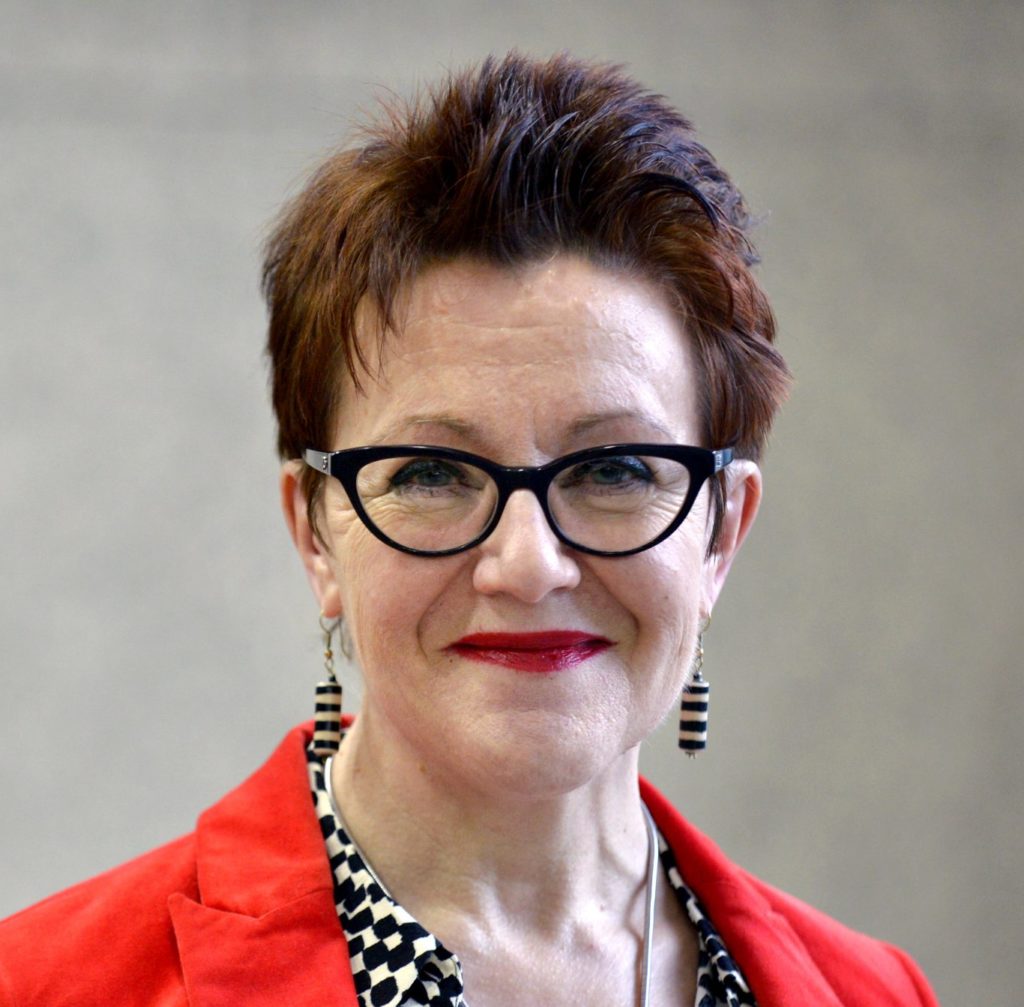
Rosie Goldsmith
Rosie Goldsmith is an award-winning journalist specialising in arts and foreign affairs. Today she combines journalism with chairing and curating literary events and festivals. She is founder and director of the European Literature Network and created The Riveter magazine.
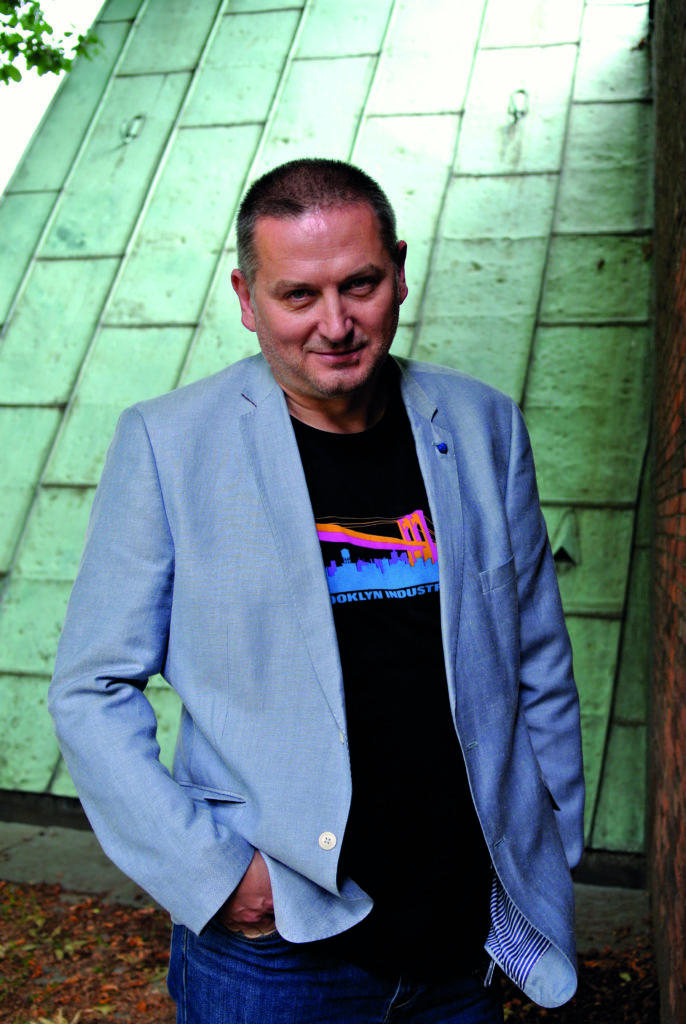
Svetla Stoyanova
Georgi Gospodinov
Georgi Gospodinov (1968) is a leading Bulgarian writer, the author of Natural Novel and The Physics of Sorrow, among many other books. He is winner of the Central European Angelus Award (2019), the Jan Michalski Prize (2016) and many other accolades. Recently, Gospodinov was awarded the Usedom Prize (Germany, 2021) for contribution to the European literature by a jury presided by Olga Tokarczuk. His latest novel, Time Shelter (Zeitzuflucht), was published in the spring of 2020 during the first lockdown and is forthcoming in more than fifteen countries, among them Germany (Aufbau), France (Gallimard), US (Liveright/Norton). In 2021, Time Shelter won the prestigious Italian award Premio Strega Europeo.
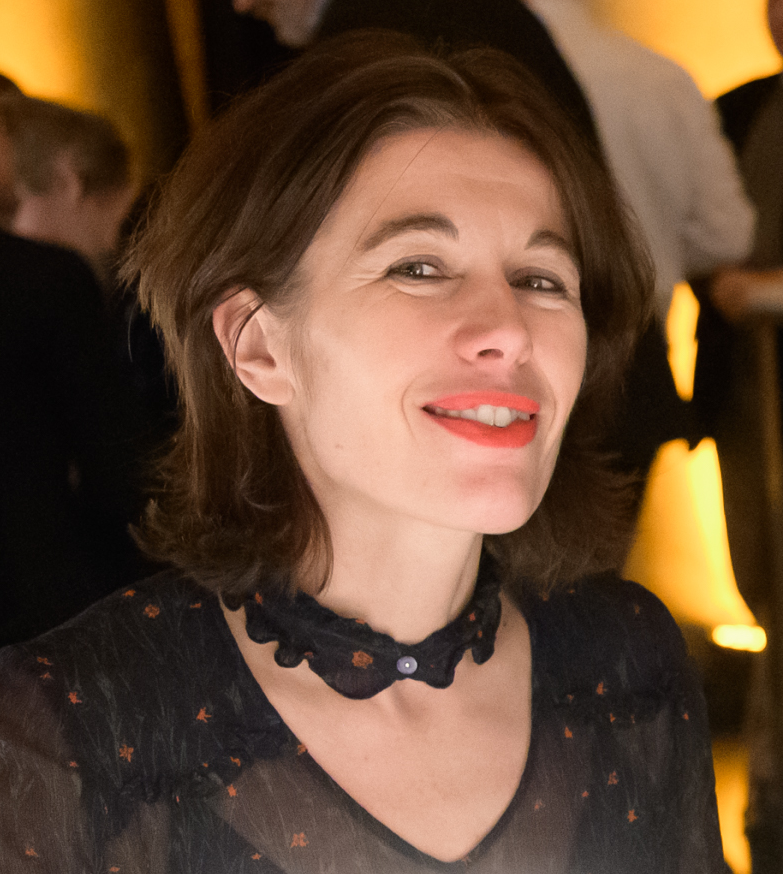
Andrea Grill
Andrea Grill was born in Bad Ischl and studied in Salzburg, among other places. She did her PhD at the University of Amsterdam on the evolution of endemic butterflies in Sardinia. Grill writes poetry, stories and novels and translates from Albanian and Dutch. Her translations include the novel Milchkuss by Mimoza Ahmeti, the poetry collection Kinder der Natur by Luljeta Lleshanaku and Der Schlaf des Oktopus by Ervina Halili. As an author, her work include Das Paradies des Doktor Caspari (2015), Cherubino (2019) and most recently Bio-Diversi-Was? Reise in die fantastische Welt der Artenvielfalt and Seepferdchen, both published in 2023.
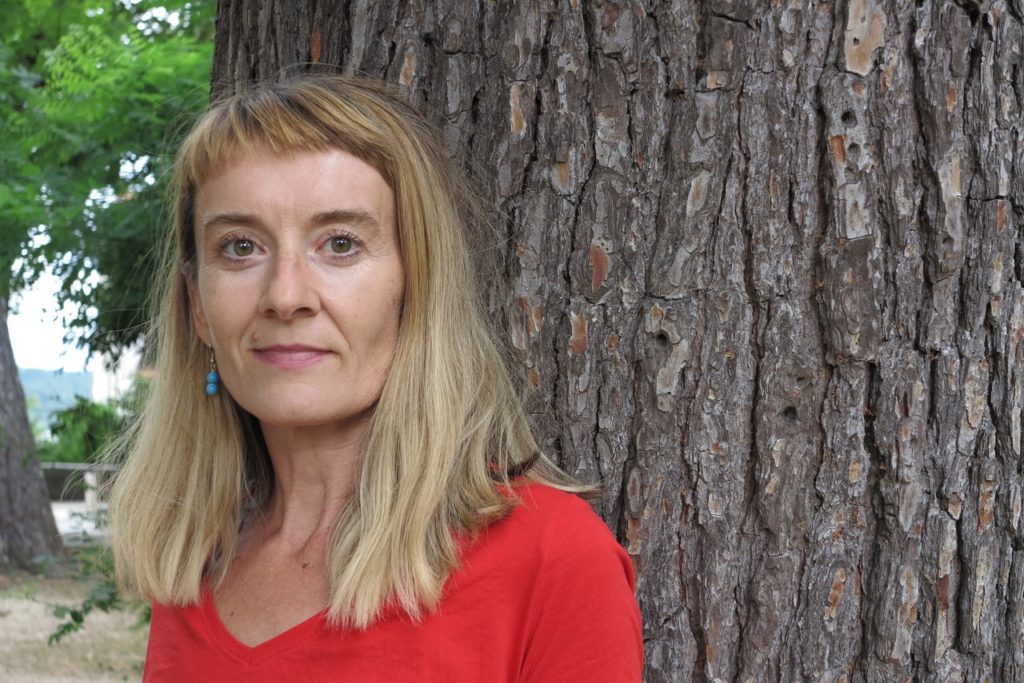
Radanko Vadanjel
Tatjana Gromača
Tatjana Gromača was born in 1971 in Sisak, and lives in central Istria near Pula. She studied comparative literature and philosophy in Zagreb (graduated in 1995) and had been a long-time contributor for the legendary, recently closed down Croatian weekly Feral Tribune, writing literary reportages, book reviews, and articles. Since 2008, she has been a cultural columnist and reporter at the daily newspaper Novi list and has been writing poetry, prose and essays. She received several prizes for her work, among others a grant of the Academy of Arts Berlin.
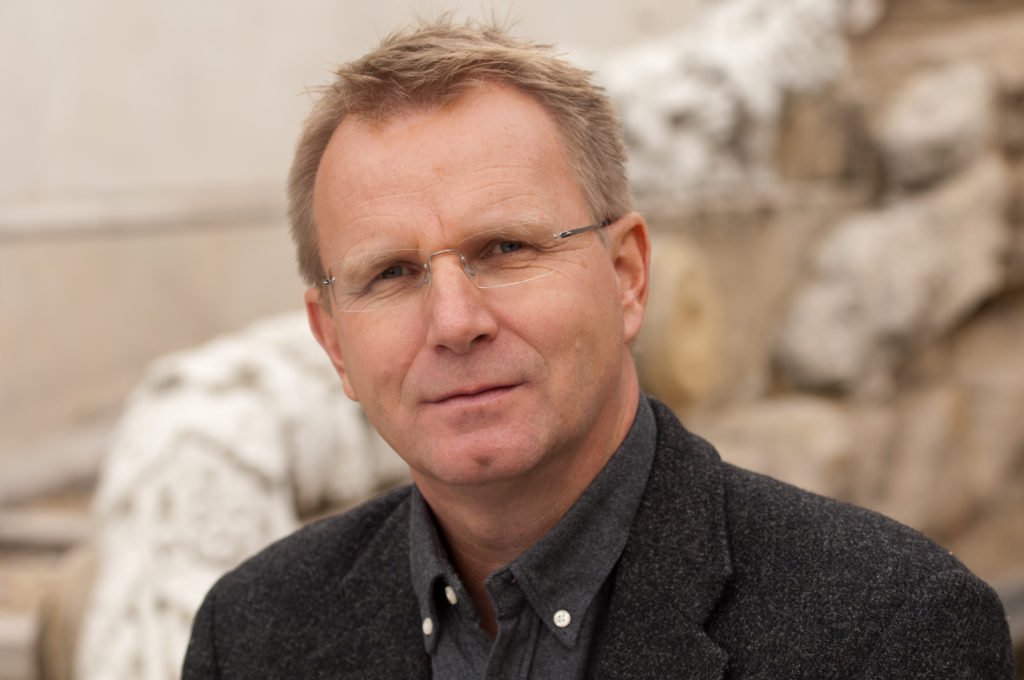
Elisabeth Novy
Günter Kaindlstorfer
Günter Kaindlstorfer, born in Bad Ischl in 1963, is an Austrian literary critic, TV moderator, writer, and journalist.
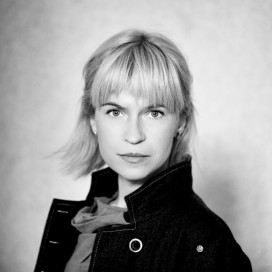
Samira Kentrić
Samira Kentrić (1976) is an artist who transfers the social reality of her time into images. She enjoys creating surreal situations to highlight what she believes is the most real. She works in various techniques, as many as she finds appropriate. Her main interest lies in the area where public and political expressions meet with the intimate aspects of people’s every-day. She wants her work to communicate themes that lack reflection and are therefore often awkward and hidden. She has published three graphic novels Balkanalije (autobiography) in 2015, Pismo Adni (a visual and literary commentary about the refugee situation) in 2016 and Adna in 2020.
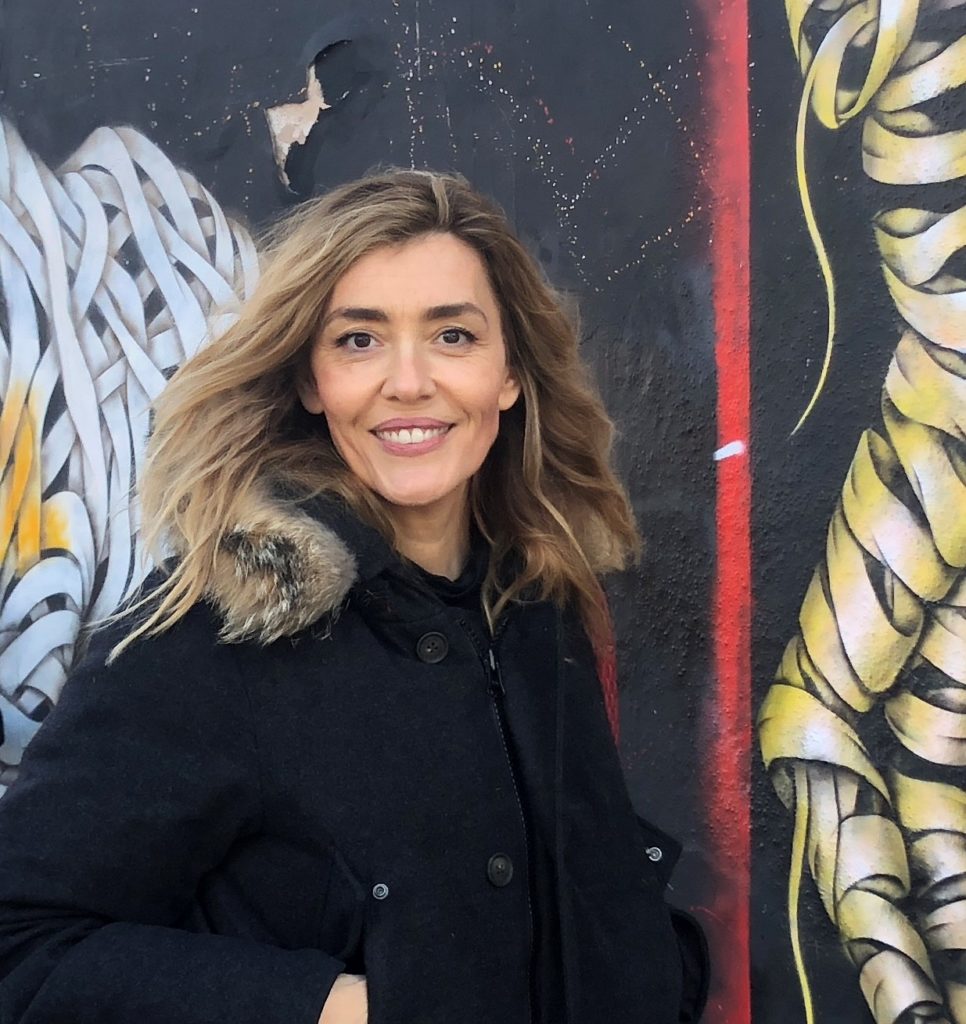
Olja Knežević
Olja Knežević was born in Podgorica, Montenegro. In 2008, she completed her M. A. in Creative Writing at Birkbeck College in London and received the Overall Prize for the best thesis, which later became her first novel Milena & Other Social Reforms. In 2013 she published a volume of autobiographical short stories: London & Stories of the South. This was followed by another novel: Mrs Black (2015, 2nd edition 2021). Catherine the Great and the Little (2019) is her first book available in German translation. For the manuscript of the novel she received the prestigious V.B.Z. Literature Prize for the best unpublished novel in Bosnian/Croatian/Montenegrin/Serbian.
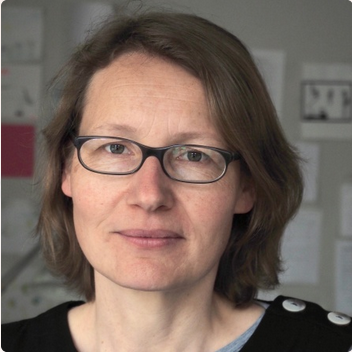
Robert Stürzl
Anne König
Anne König is a publisher and author living in Leipzig. She founded the publishing house Spector Books with Markus Dreßen and Jan Wenzel in 2001. In 2019, she published Bruchlinien. Drei Episoden zum NSU together with Nino Bulling and Jonas Mekas: I Seem to Live. The New York Diaries, 1950-2011 in two volumes. She is the editor of all books by Jonas Mekas in the Spector Books programme and has recently co-curated a retrospective in honour of the 100th birthday of the avant-garde filmmaker at the Arsenal in Berlin.
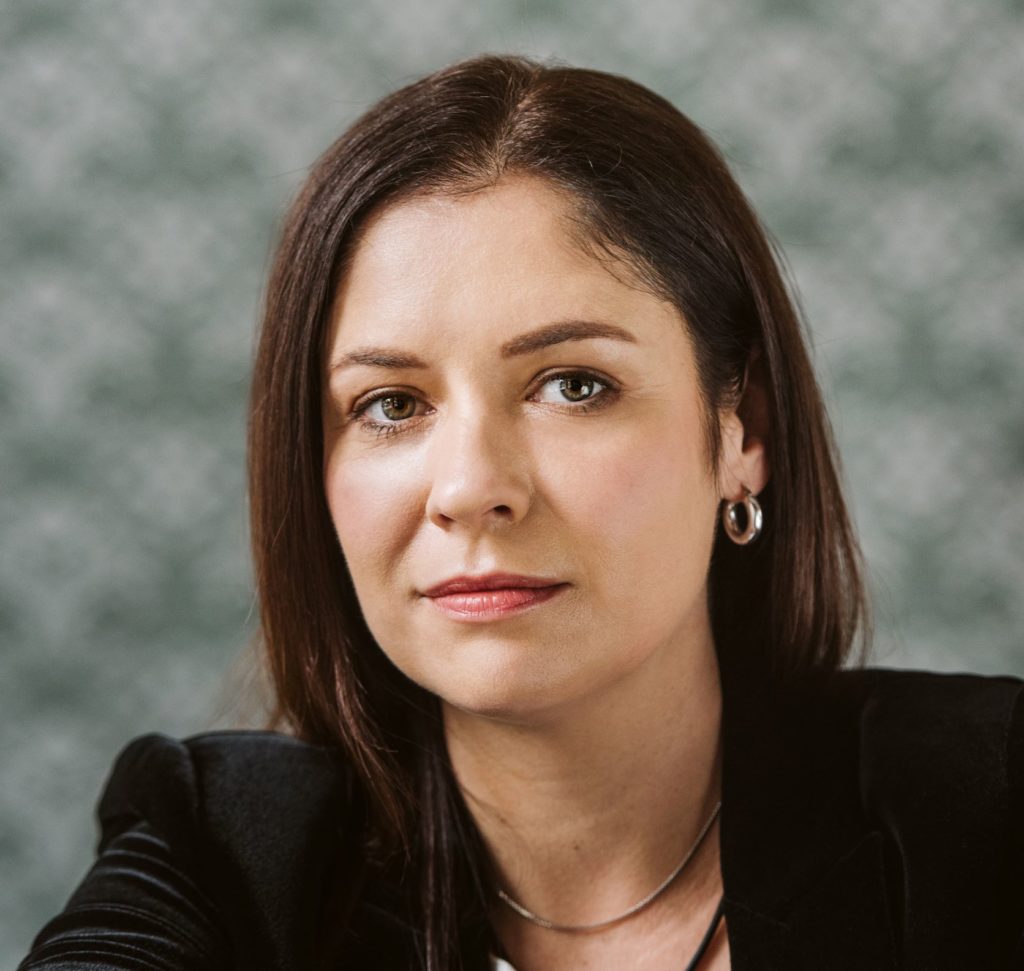
Mankica Kranjec
Jela Krečič
Jela Krečič, born in 1979, is a Slovenian journalist, columnist and philosopher. She is married to philosopher Slavoj Žižek. She writes for the largest national daily newspaper “Delo”, in which she published an exclusive interview with Julian Assange in 2013. She is co-editor of several anthologies on contemporary television series and on the German-American film director Ernst Lubitsch. Her literary debut Keine wie sie (Ni druge), published in 2015, was very successful in Slovenia. Her second novel, Knjiga drugih (Das Buch der anderen), was published in 2018.
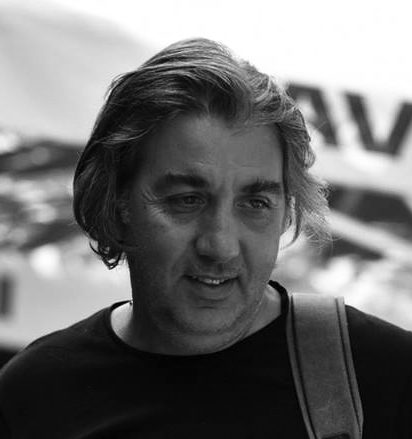
Arian Leka
Arian Leka, born in 1966, studied Music in his place of birth, Durrës and Albanian Language and Literature in Tirana. He writes poems, short stories, novels and children’s literature and has translated the works of the Italian Nobel prize winners Eugenio Montale and Salvatore Quasimodo into Albanian. In 2004 he founded the International Poetry and Literature Festival, POETEKA, and since then has been the Chief Editor of the literary journal of the same name.
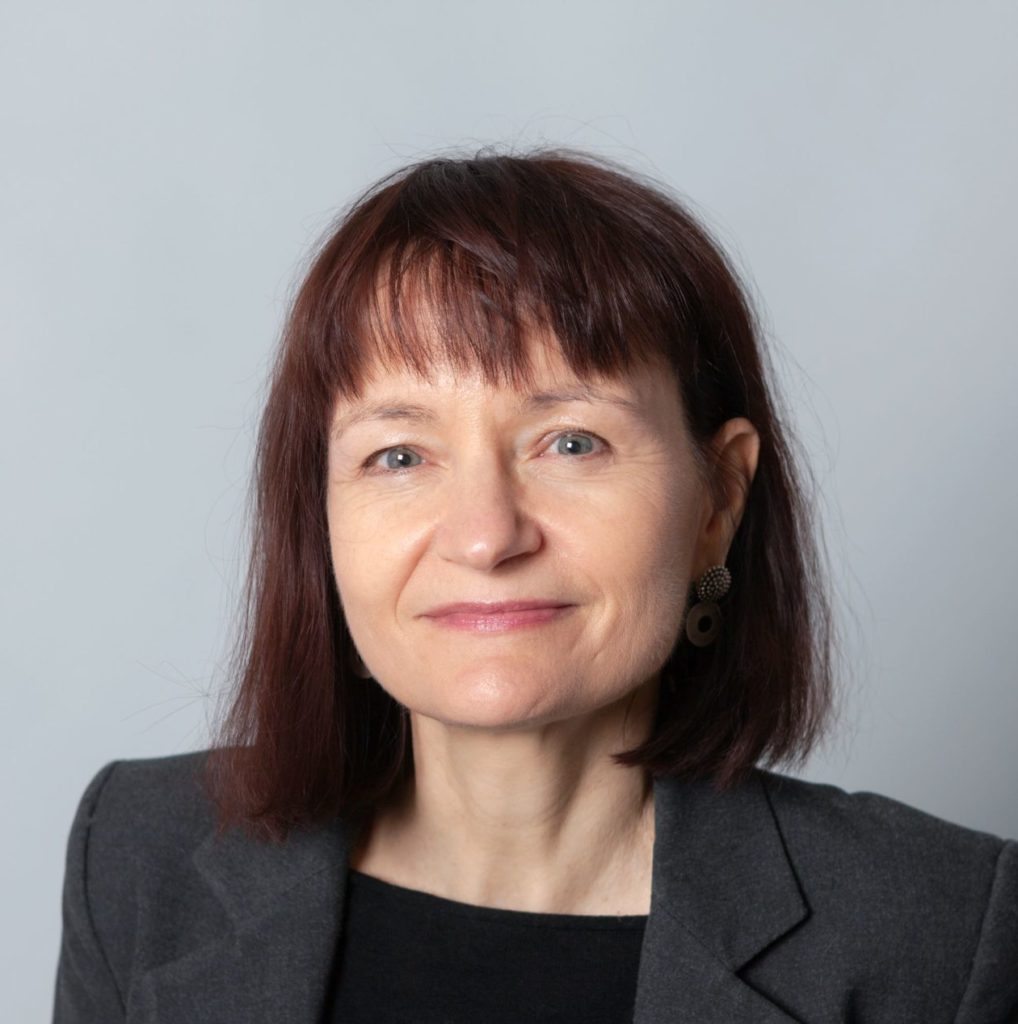
Marko Lipuš
Cvetka Lipuš
Cvetka Lipuš, born in 1966 in Eisenkappel/Železna Kapla, studied comparative literature and Slavic studies in Klagenfurt. From 1990 to 2000 she was co-editor of the cultural magazine Mladje alongside Maja Haderlap and Fabjan Hafner. From 1995 she lived and worked in the United States, where she studied library and information science at the University of Pittsburgh. She writes in Slovene and has published numerous volumes of poetry. For her literary work, she received the 2016 Prešeren Foundation Prize, the Austrian State Scholarship for Literature and the Carinthian State Prize for Literature.
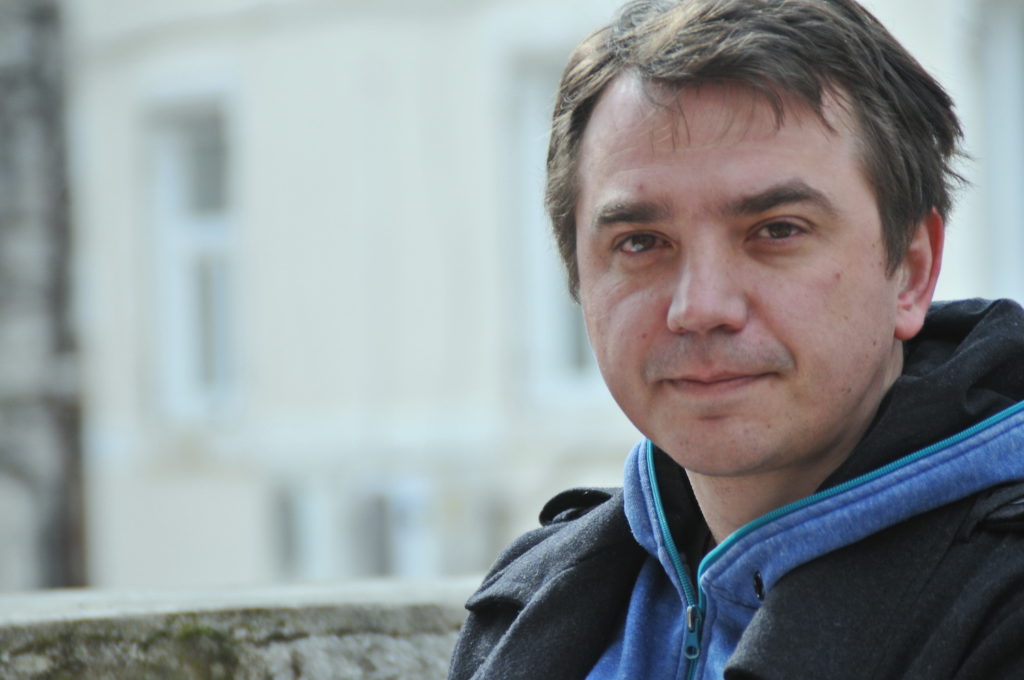
Edi Matić
Tomislav Marković
Tomislav Marković, born in 1976, lives and works in Belgrade and is the author of poems, prose texts, and essays. His publications include Vreme smrti i razonode (Time of death and joy, 2009), the poetry collection Čovek zeva posle rata (A man yawns after the war, 2014) and book of satirical prose Velika Srbija za male ljude (Greater Serbia for little people, 2018). He writes columns for web portals Al Jazeera Balkans, Nomad.ba, AntenaM.net, Zurnal.info and Tacno.net. Some of his writing is available in Albanian, Slovene, English, German and Hungarian translation.
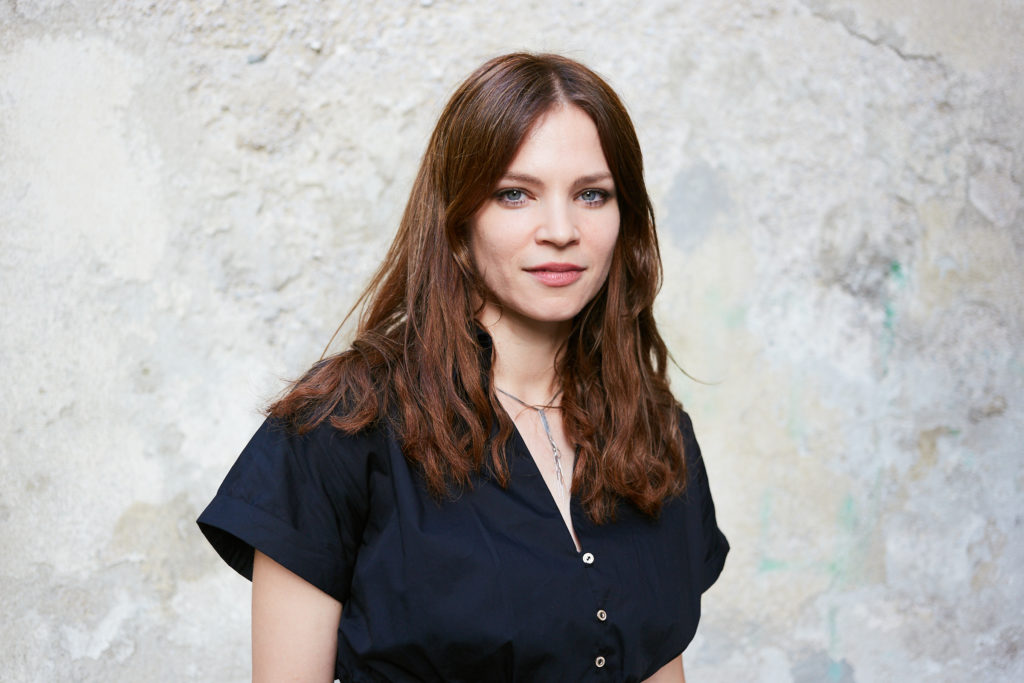
Una Rebic
Ana Marwan
Born in 1980 in Murska Sobota/SLO, grew up in Ljubljana. Studied Comparative Literature in Ljubljana and Romance Studies in Vienna. Lives as a freelance author in the countryside between Vienna and Bratislava and writes short stories, novels and poems in German and Slovenian. “Der Kreis des Weberknechts” (2019, 3rd ed.) is her debut novel. She is the recipient of the Exil-Literaturpreis “schreiben zwischen den kulturen” 2008, the “Kritiško sito” for the best book of the year in Slovenia 2022, and the Ingeborg Bachmann Prize 2022.
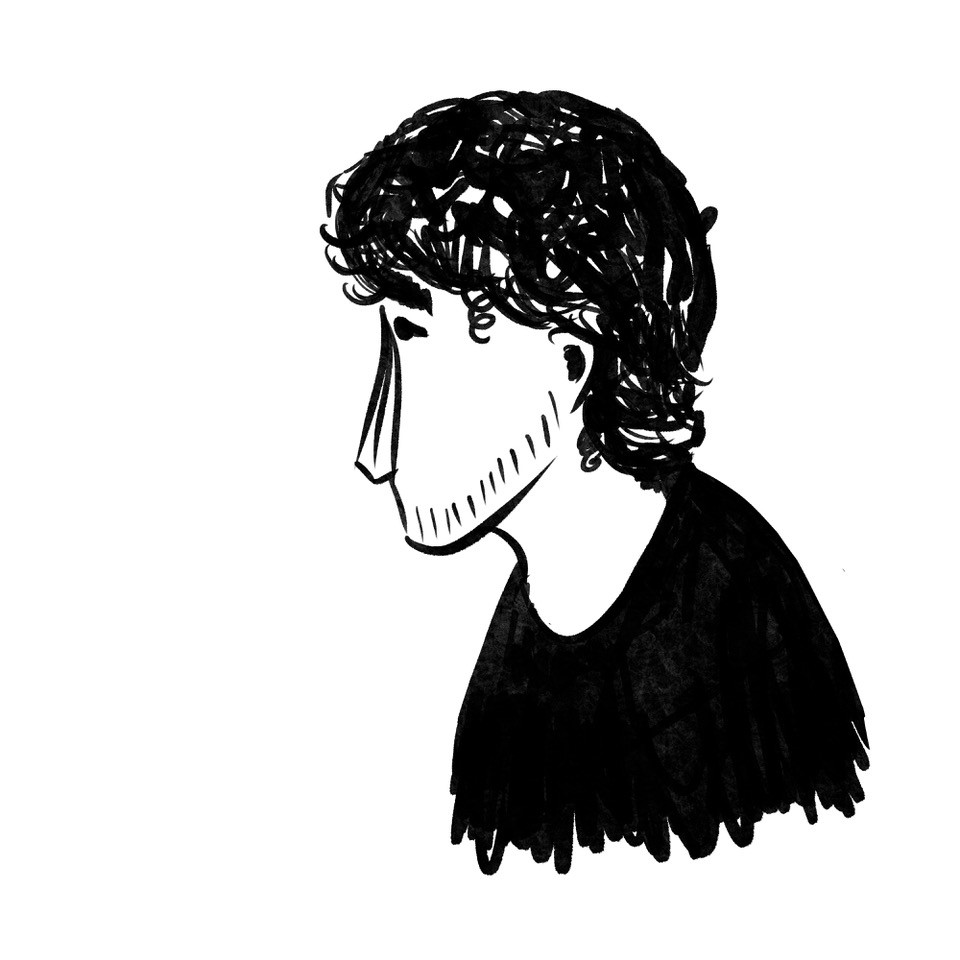
Meikel Mathias
Meikel Mathias
Meikel Mathias, born in 1985, grew up in Liechtenstein. He lives and works as a graduate designer, illustrator and comic artist in Berlin. His first book “Inshallah – Kurzgeschichten aus Marokko” (Inshallah – Short Stories from Morocco) was based on a research trip of several months and followed the concept of fictionalised everyday reportage. His latest graphic novel “Straßen & Idioten” (Streets & Idiots) remains true to this working principle and transports the reader to Russia in 2017, half a decade before the war of aggression on Ukraine.
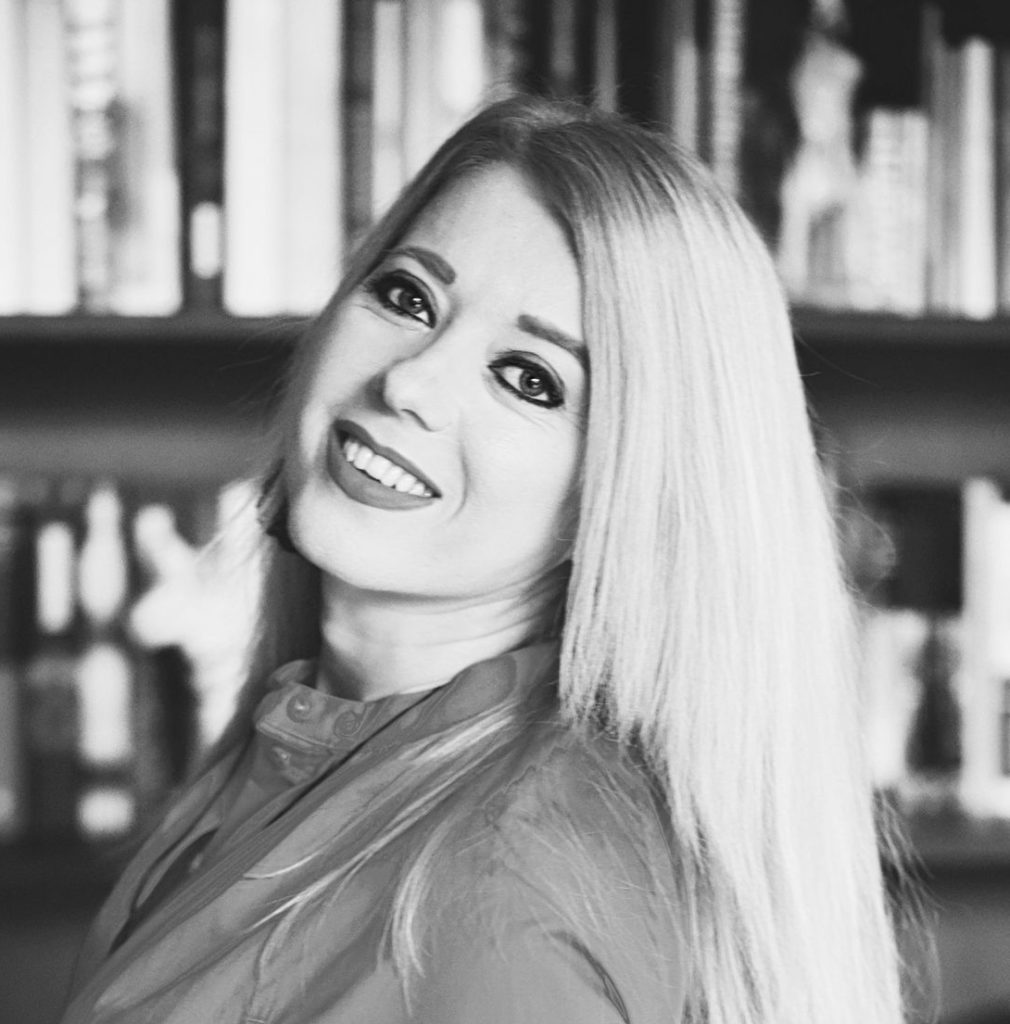
Catalina Flaminzeanu
Ioana Nicolaie
Ioana Nicolaie was born in 1974 in Sângeorz-Băi, in the north of Romania. She studied literature at the University of Bucharest. Afterwards she worked as a teacher, journalist and for various publishing houses. Today she lives as a freelance author in Bucharest.
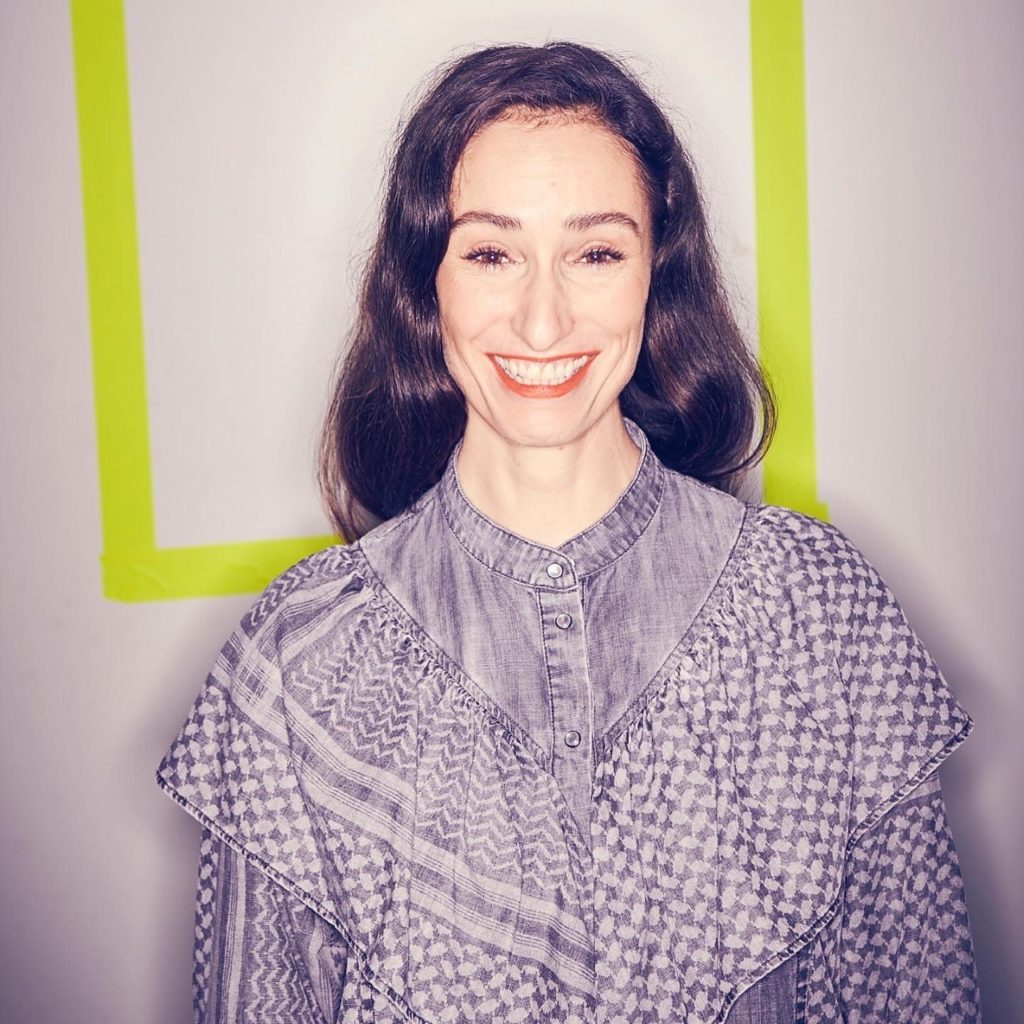
Robertino Nikolic
Vivian Perkovic
Vivian Perkovic, born 1978 in Winterberg, is a German journalist and television presenter. She studied German language and literature with a focus on media and theatre and South Slavic studies at the University of Hamburg. She currently works for 3sat Kulturzeit.
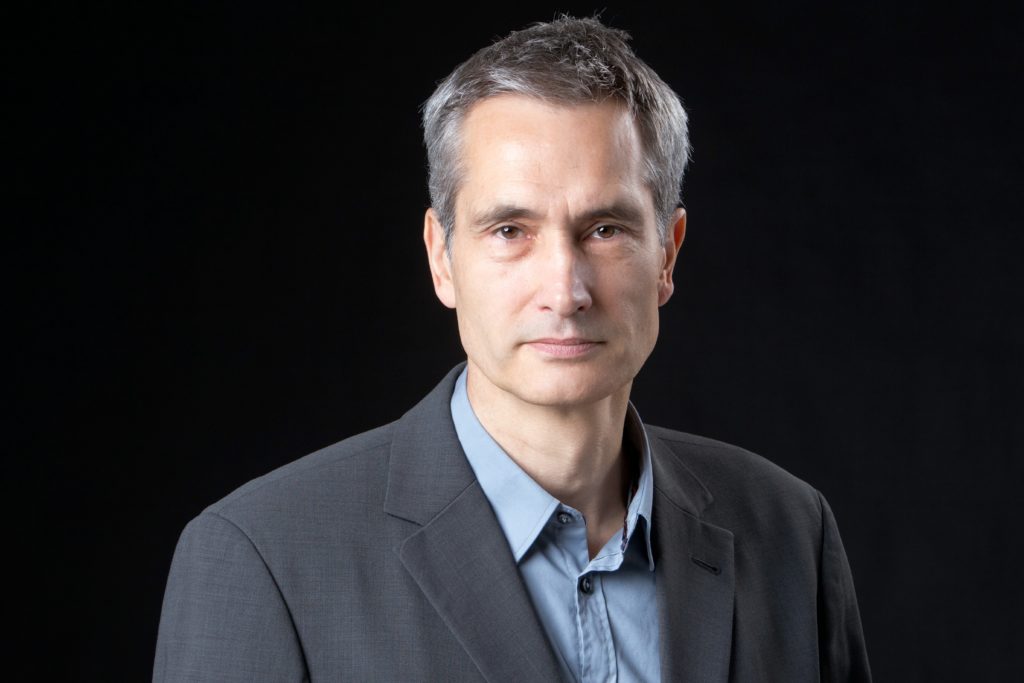
Gezett
Jörg Plath
Jörg Plath, born in 1960, is literary editor of “Deutschlandfunk Kultur” and writes for the “Frankfurter Allgemeine Zeitung” and the “Neue Zürcher Zeitung”. He has been an editor, ghostwriter, and jury member (German Book Prize, International Literature Prize). He is currently on the jury of Weltempfänger.
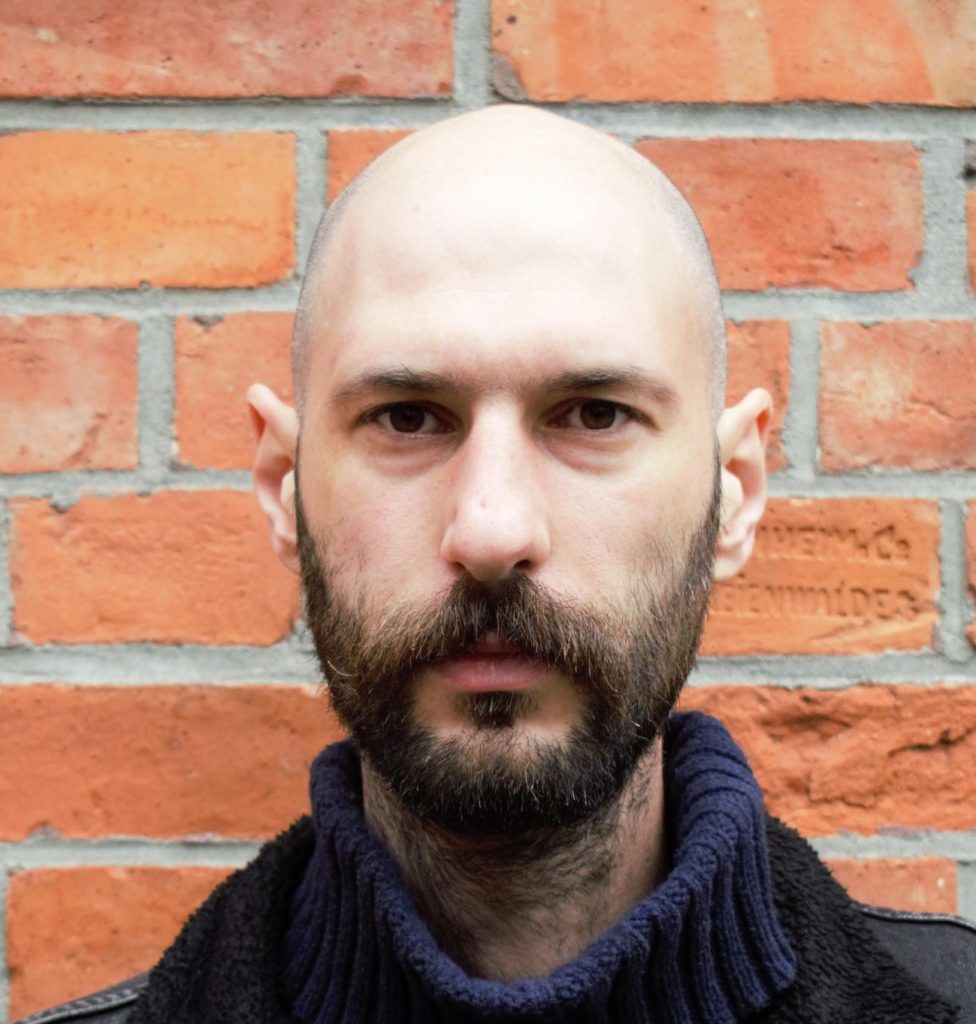
Dora Held
Marko Pogačar
Marko Pogačar was born in 1984 in Split, Yugoslavia. He is holding MA’s both in theory of literature and history. He has published fifteen books of poetry, prose and essays, for which he received Croatian and international awards. In 2014, he edited the Young Croatian Poetry anthology, followed by The Edge of a Page: New Poetry in Croatia (2019). He was a fellow of, among others, Civitella Ranieri, Literarische Colloquium Berlin, Récollets-Paris, Passa Porta, Milo Dor, Krokodil Beograd, Landis & Gyr Stiftung, Lyrik Kabinett Munich and DAAD Berliner Künstlerprogramm fellowships. His books and texts have appeared in more than thirty languages.
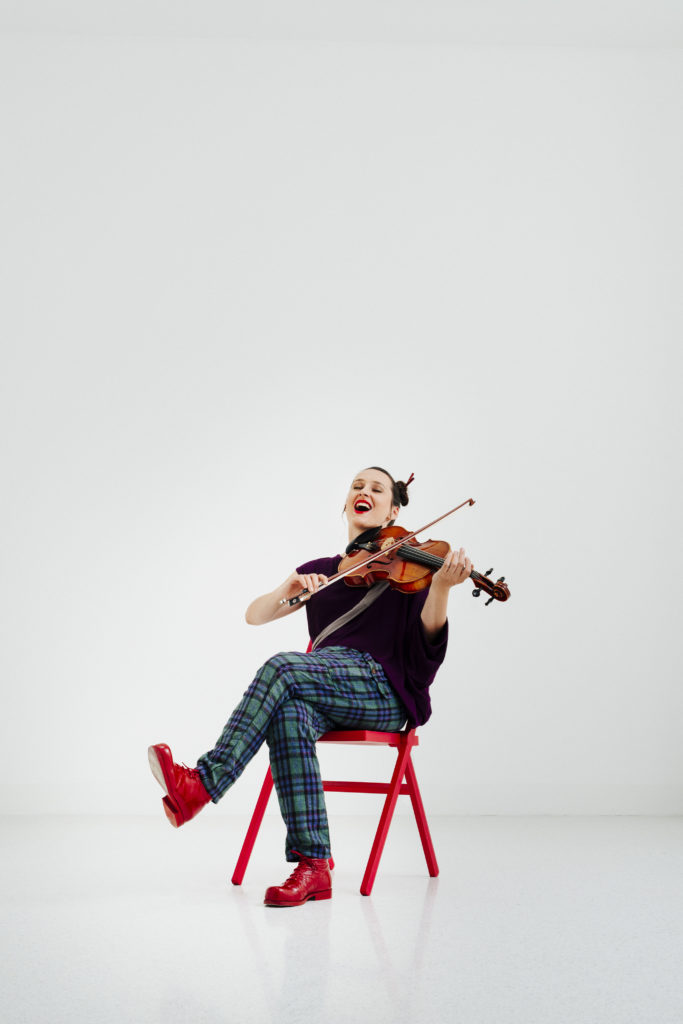
Wolf-Dieter Grabner
Jelena Popržan
Jelena Popržan is a violist, singer, composer and performer living in Vienna. Born in 1981 in Novi Sad, studied viola in Belgrade, master’s degree at KUG/Oberschützen/Graz. In 2008 she founded her own ensembles such as Catch-Pop String-Strong (Austrian World Music Award 2011, among others), Sormeh and Madame Baheux (Austrian World Music Award 2014). Concert tours have taken her across Europe, to Peru, Mexico, Canada, Uzbekistan, the USA, Turkey, all the countries of the former Yugoslavia and all provinces of Austria. Her musical œuvre ranges from classical, world, jazz, political song, music cabaret, folk, rock, new music, and voice experimentation.
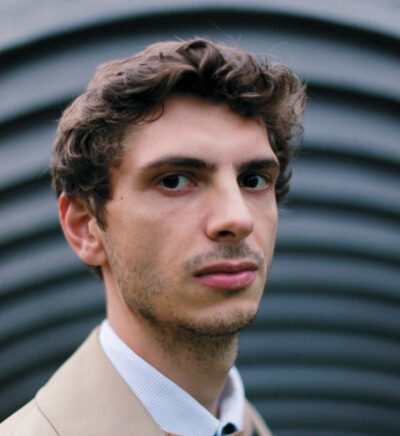
Janez Klenovšek
Uroš Prah
Uroš Prah, born in Maribor in 1988, has published three volumes of poetry: Čezse polzeči (2012), Tišima (2015 – nominated for the Veronika Prize as well as the Simon Jenko Prize) and Udor (2019). In 2018, he received the Exile Poetry Prize for his investigative poem Nostra Silva, written in German; most recently, the short story Die Fächer was published in Literatur und Kritik. Translations of his books, poems and essays have appeared in fifteen countries. He was co-founder and editor-in-chief of the literary magazine IDIOT, programme director of the international festival Literodrom and co-founder of the Museum of Madness, Trate. Uroš Prah currently lives in Vienna.
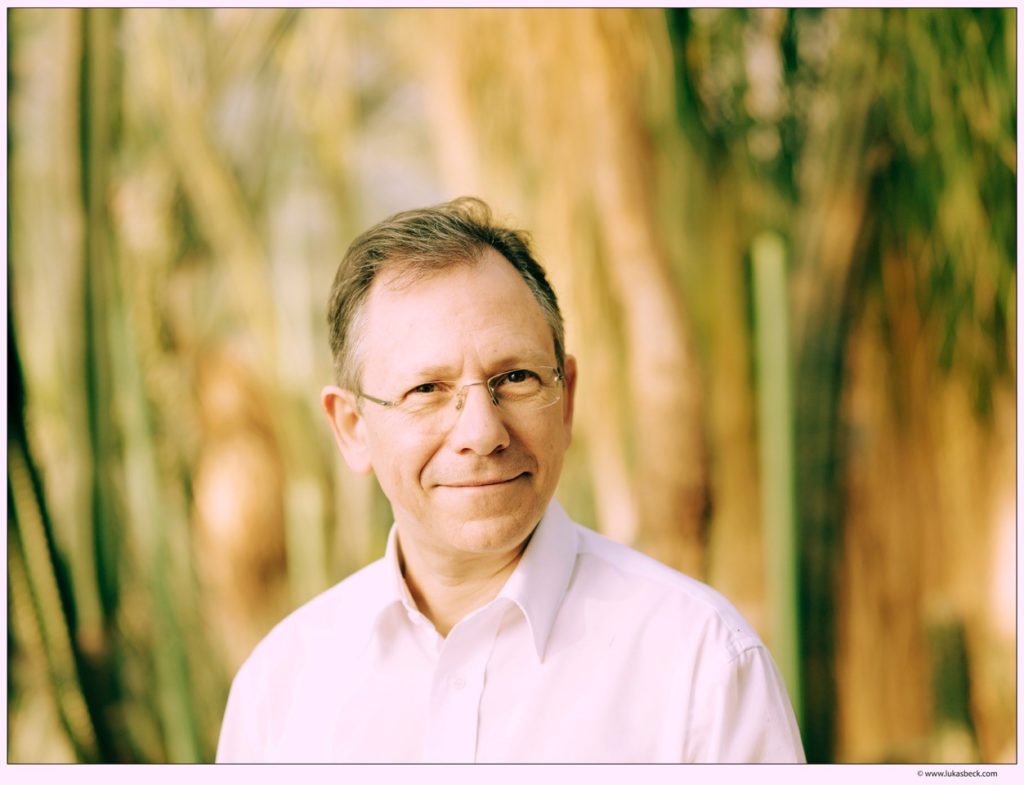
Lukas Beck
Doron Rabinovici
Doron Rabinovici, born in Tel Aviv in 1961, has lived in Vienna since 1964. He is a writer and historian. His work includes short stories, novels, essays and scholarly studies. In Austria, he repeatedly takes a prominent stand against racism, right-wing extremism and anti-Semitism. Rabinovici is a member of the Academy of Sciences and Literature in Mainz. For his work he has been awarded, among others, the Anton Wildgans Prize and the Honorary Prize of the Austrian Book Trade for Tolerance in Thought and Action.
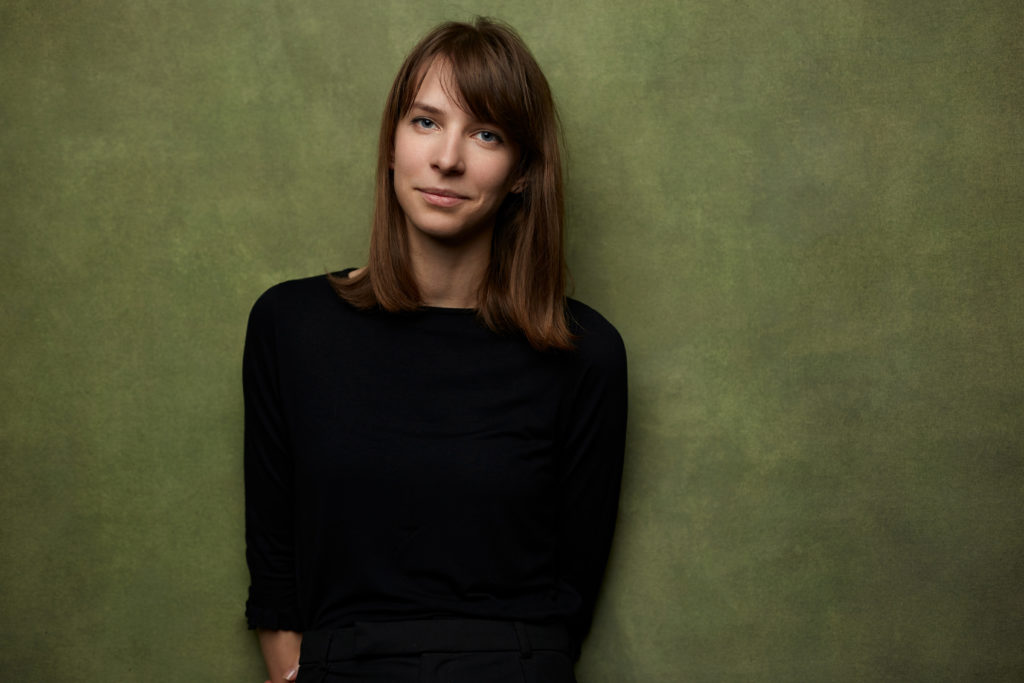
Dado Ljaljević
Jana Radičević
Jana Radičević, born 1997 in Podgorica, is a Montenegrin poet. She studied German language and literature at the University of Montenegro. She is an active member of the Young Writers Forum community. Partizanska knjiga published a book of poetry ako kažem može postati istina (if said, it can become the truth) (2019) and her long poem zona neutralnog pritiska (zone of neutral pressure) (2022). The latter has been translated into German under the title zone des neutralen druckes (Edition Thanhäuser, 2022). She was the youngest holder of the literature scholarship Writer of the City of Graz in 2020/21.
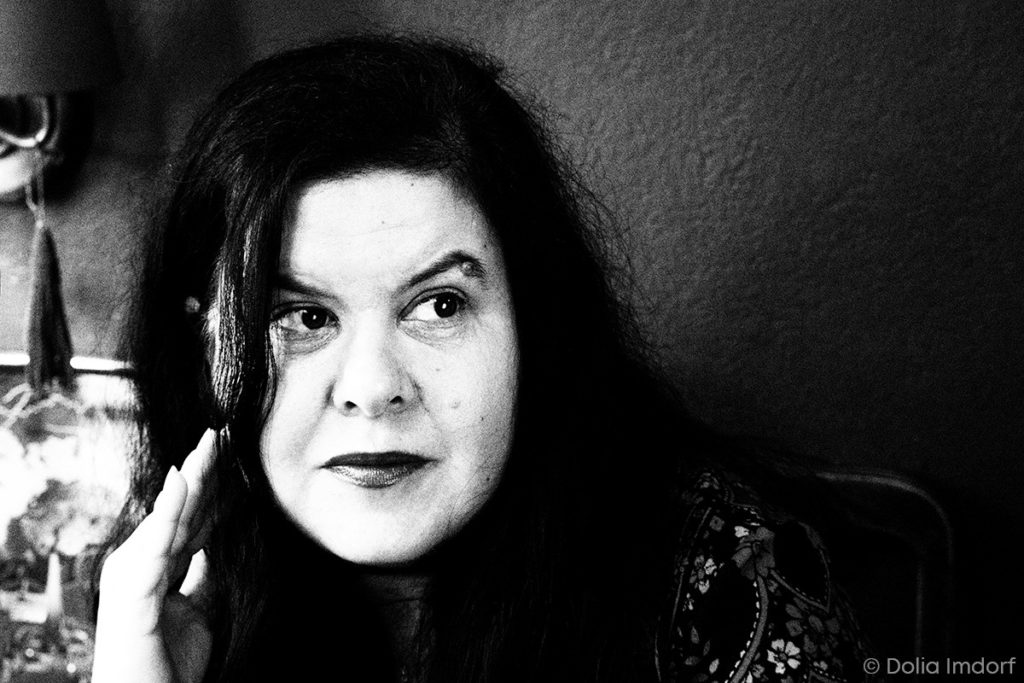
Dolia Rosa Imdorf
Nadya Radulova
Nadya Radulova, born 1975, is a Bulgarian poet, translator and editor. She studied linguistics and gender studies in Sofia and Budapest. She completed her doctorate on the topic of “Figures of Femininity in Literary Modernism” at Sofia University. She has received several awards both as a poet and as a translator from English.
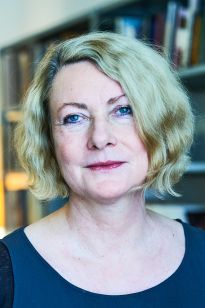
Claudia Romeder
Claudia Romeder is head of the Residenz Verlag.

Maja Bosnić
Ivana Sajko
Ivana Sajko, born in Zagreb in 1975, is a writer, theatre director and performer working in the overlapping fields of literature, performing arts and music. The thematic focus of her texts lies often on female perspectives and an examination of recent Eastern European history. Her books in German translation include Rio bar (2008), Familienroman (2020), Jeder Aufbruch ist ein kleiner Tod (2022) and Liebesroman (2017), for which she received the International Literature Award of the HKW. She lives in Berlin with her son Yves and dog Puntino.
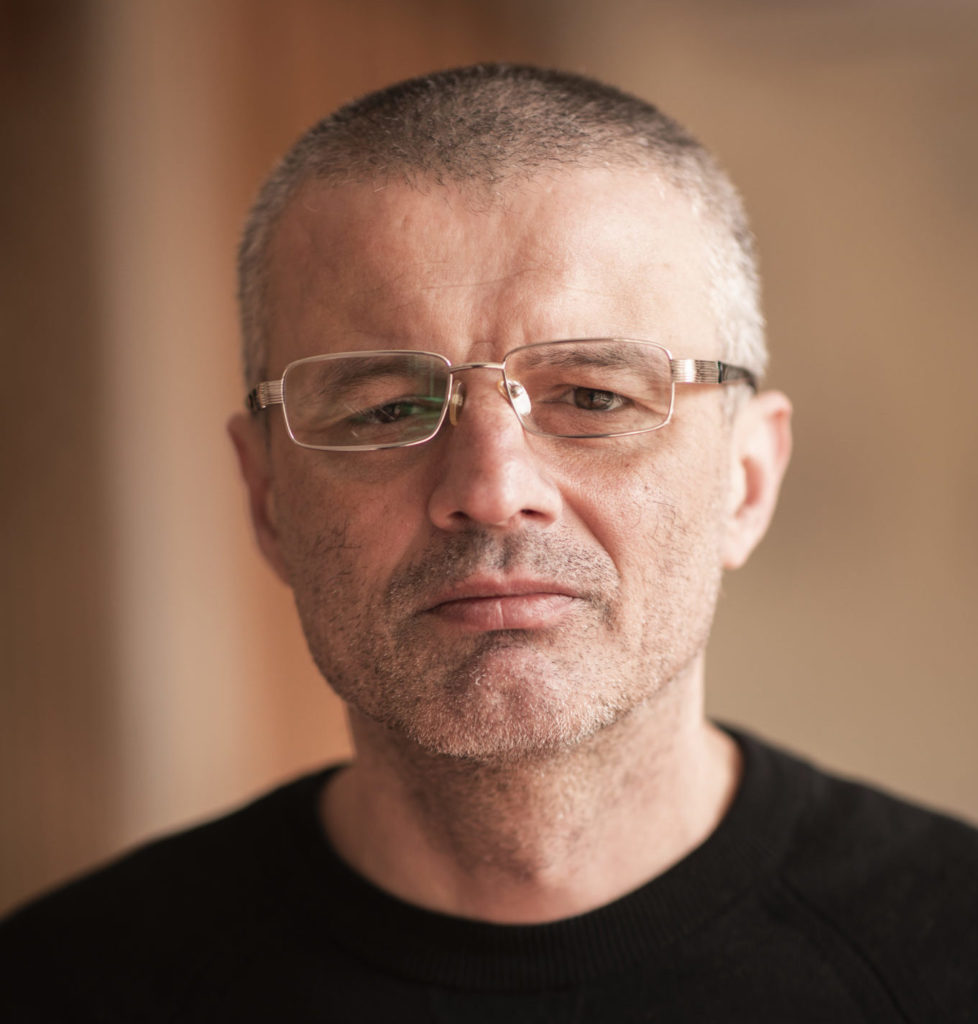
Mihai Neagu
Adrian Schiop
Adrian Schiop was born in Porumbacu de Jos (Sibiu County) in 1973 and studied psychology, education and linguistics in Cluj-Napoca. Having already attracted attention with his autofictional novels “pe bune/pe invers” (2004) and “Zero grade Kelvin” (2009), he made his definitive literary breakthrough in 2013 with his third novel “Soldații. Poveste din Ferentari”. Adrian Schiop is a freelance writer and journalist living in Bucharest. “Soldaten. Geschichte aus dem Ferentari” is his first novel in German translation.
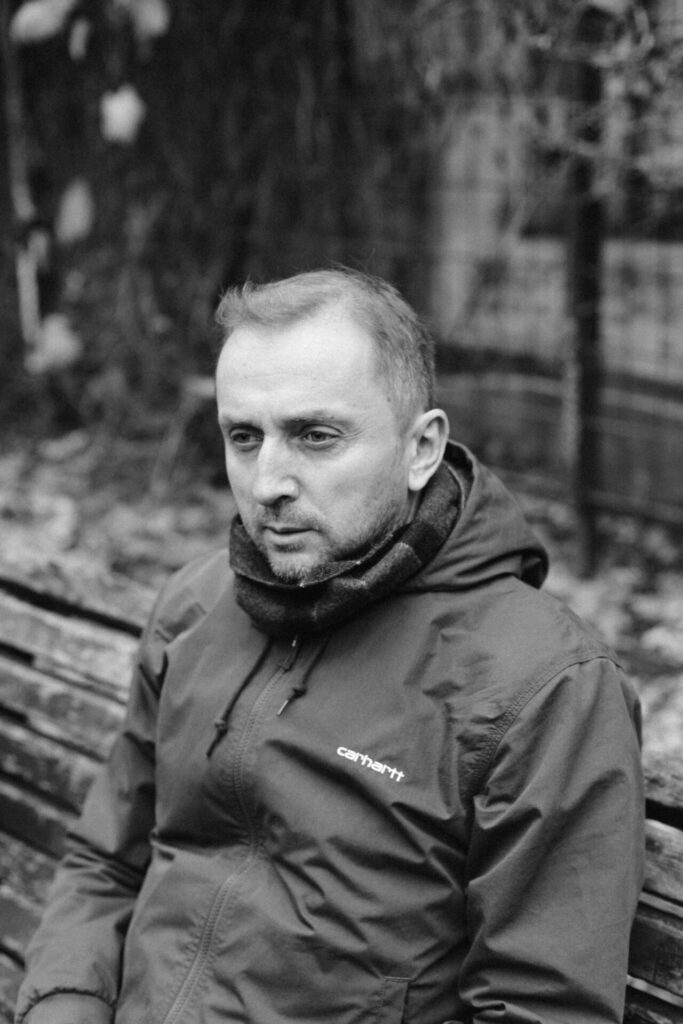
Ema Friš
Faruk Šehić
Faruk Šehić was born in 1970 in Bihać. Until the outbreak of war in 1992, Šehić studied Veterinary Medicine in Zagreb. After the war he studied literature. The literary critics regard him as the voice of the so-called mangled generation. His debut novel Knjiga o Uni (2011; tr: Quiet Flows the Una) was awarded the Meša Selimović prize for the best novel published in Serbia, Bosnia and Herzegovina, Montenegro and Croatia in 2011, and the European Union Prize for Literature 2013. Selected poems, Abzeichen aus Fleisch (2011, Edition Korrespondezen) and short stories Uhrwerkgeschichten (2021, Mimesis Verlag) are translated into German.
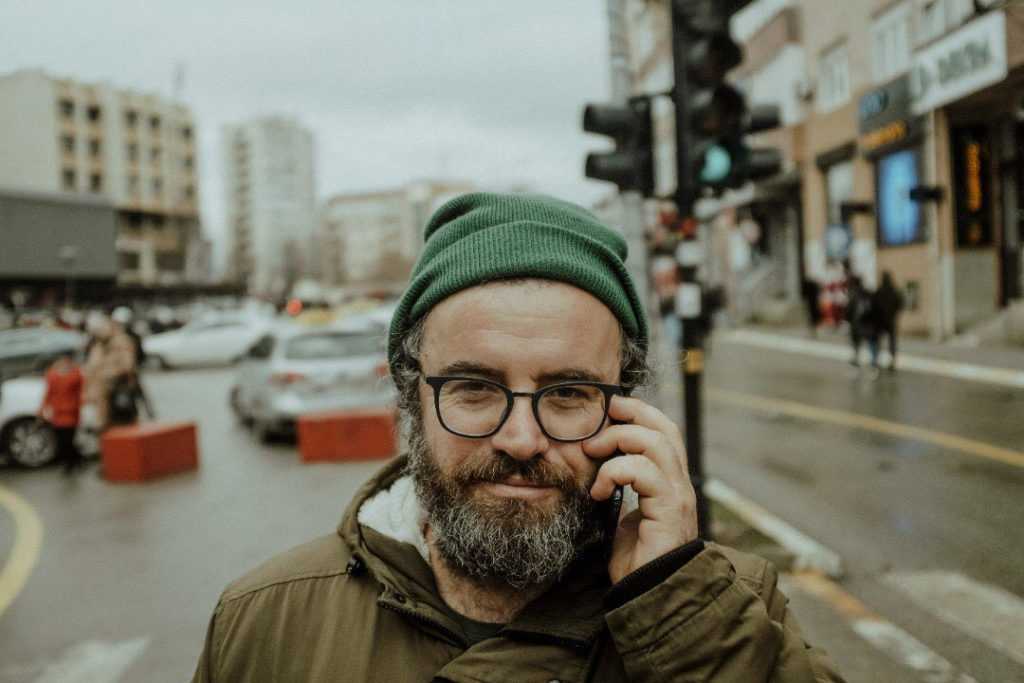
Kushtrim Tërnava
Shpëtim Selmani
Shpëtim Selmani, born in 1986, is a writer and actor from Kosovo. His books include Libërthi i dashurisë (Notebook of Love), published by Armagedoni in Prishtina in 2019. He was awarded the EU Prize for Literature for the book in 2020. The German translation was published in 2021.
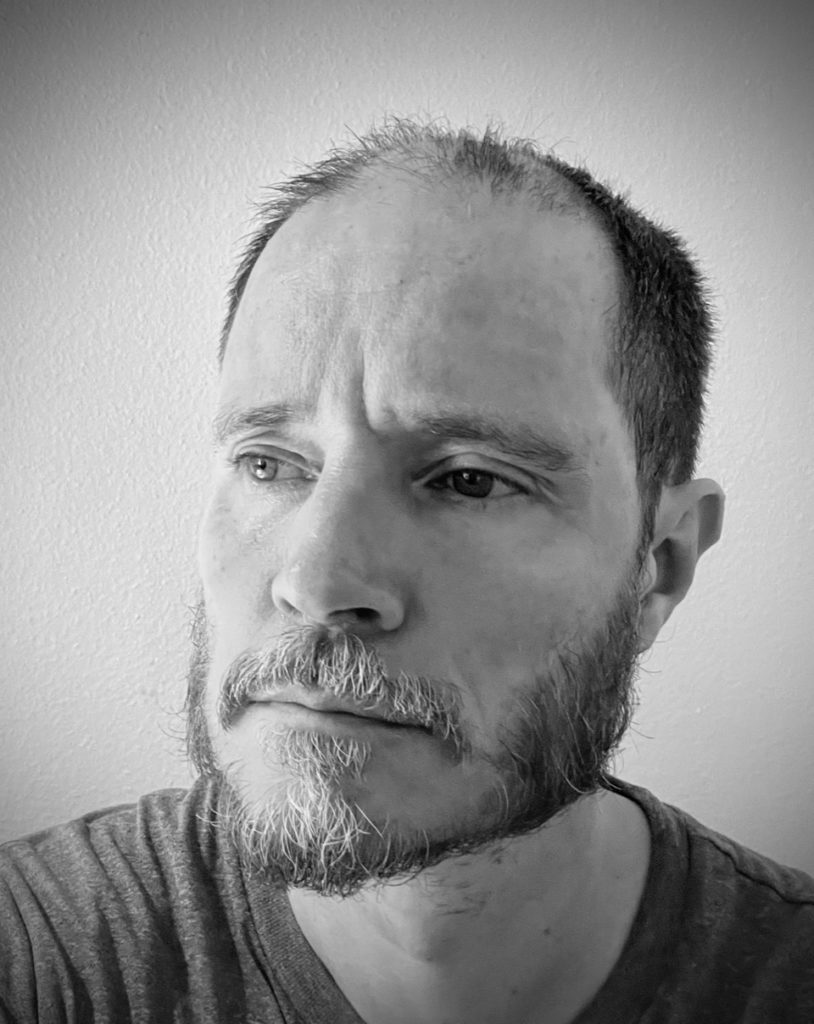
Alexander Sitzmann
Alexander Sitzmann was born in Stuttgart in 1974. He studied Scandinavian and Slavic Studies in Vienna and now teaches and does research at the university there. Since 1999 he has been working as a freelance literary translator from Bulgarian, Macedonian and the Scandinavian languages. Sitzmann is editor of several anthologies, volumes, and special journal issues focussed on specific themes. He is the recipient of the 2004 Honorary Prize of the Bulgarian Ministry of Culture, the 2016 Austrian State Prize for Literary Translation, and the 2020 Brücke Berlin Theatre Award.
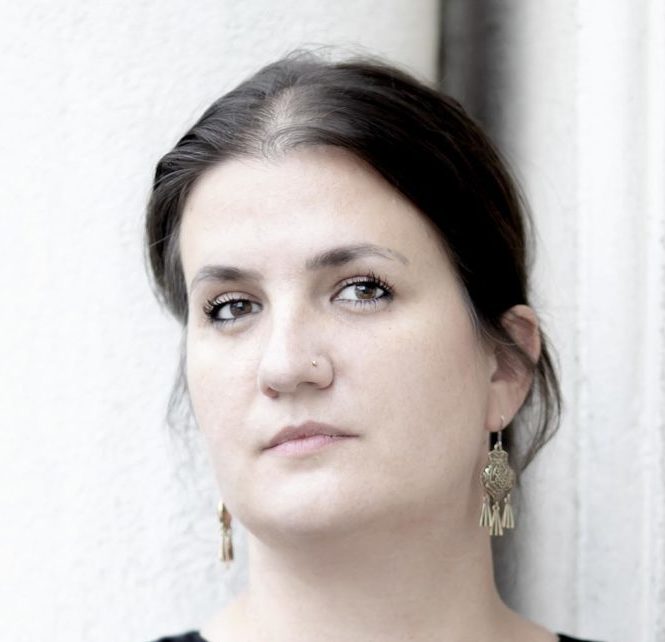
Dženat Dreković
Hana Stojić
Hana Stojić, born in Sarajevo in 1982, studied Translation Studies at Vienna University and works as a translator and cultural mediator. For her first translation into Bosnian, Elfriede Jelinek’s Die Liebhaberinnen, she received a translation prize awarded by the Austrian Federal Chancellery. Since 2008, she was working for Traduki, helming the project from 2014 till the end of 2021.
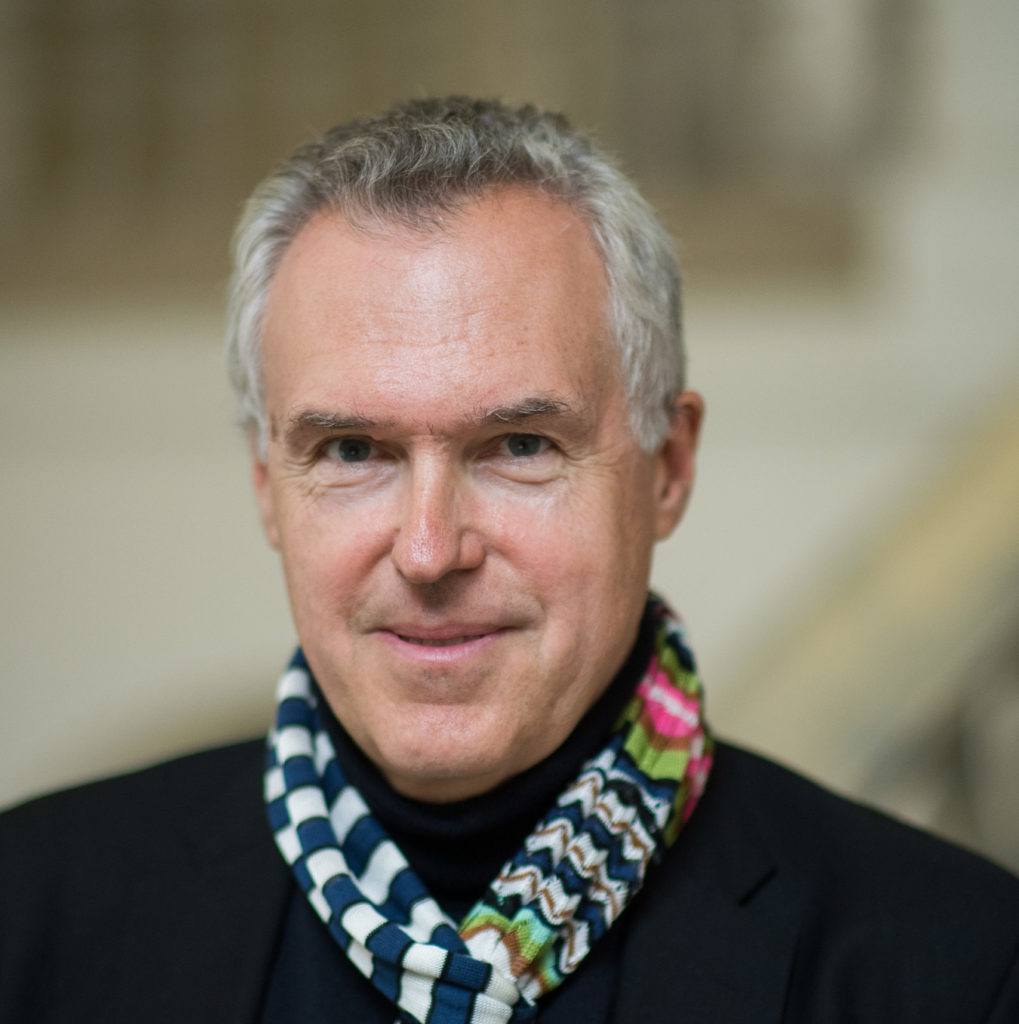
Christoph Thun-Hohenstein
Ambassador DDr. Christoph Thun-Hohenstein (born 1960) is Head of the Section for International Cultural Affairs at the Federal Ministry for European and International Affairs of the Republic of Austria. Thun-Hohenstein studied law as well as political science and art history at the University of Vienna. For the Ministry of Foreign Affairs he held posts in Abidjan, Geneva and Bonn. From 1999 to 2007 he was Director of the Austrian Cultural Forum New York. From 2007 to 2011 he was managing director of departure, the creative agency of the City of Vienna. From 2011 to 2021, Thun-Hohenstein headed the MAK – Austrian Museum of Applied Arts as general director and scientific director. He initiated the Vienna Biennale for Change, which he directed from 2014 to 2022. Most recently, he initiated the Vienna Climate Biennale, which will take place for the first time from April to July 2024.
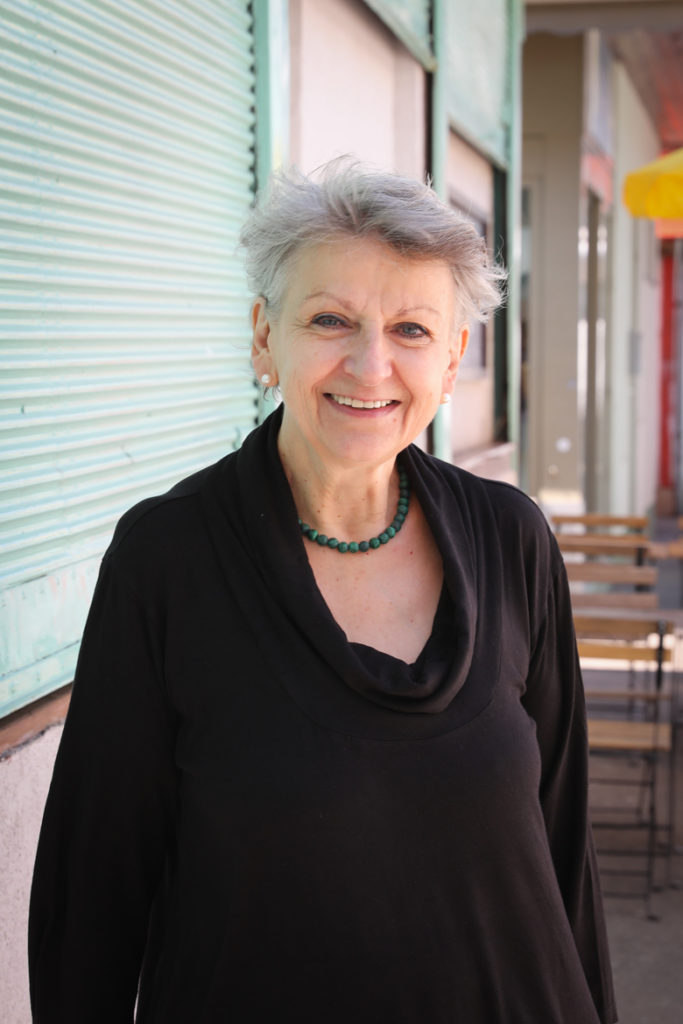
Nini Tschavoll
Annemarie Türk
Annemarie Türk, born in 1953 in Klagenfurt, studied history, political science and Slovenian language as well as cultural management and sponsoring. From 1992 to 2013, she was head of cultural promotion and sponsorship at KulturKontakt Austria and was responsible for cultural cooperation with and in 15 countries in Eastern and Southeast Europe. Since April 2013 she has been working as a freelance curator and lecturer for various educational institutions, cultural organisations and universities.
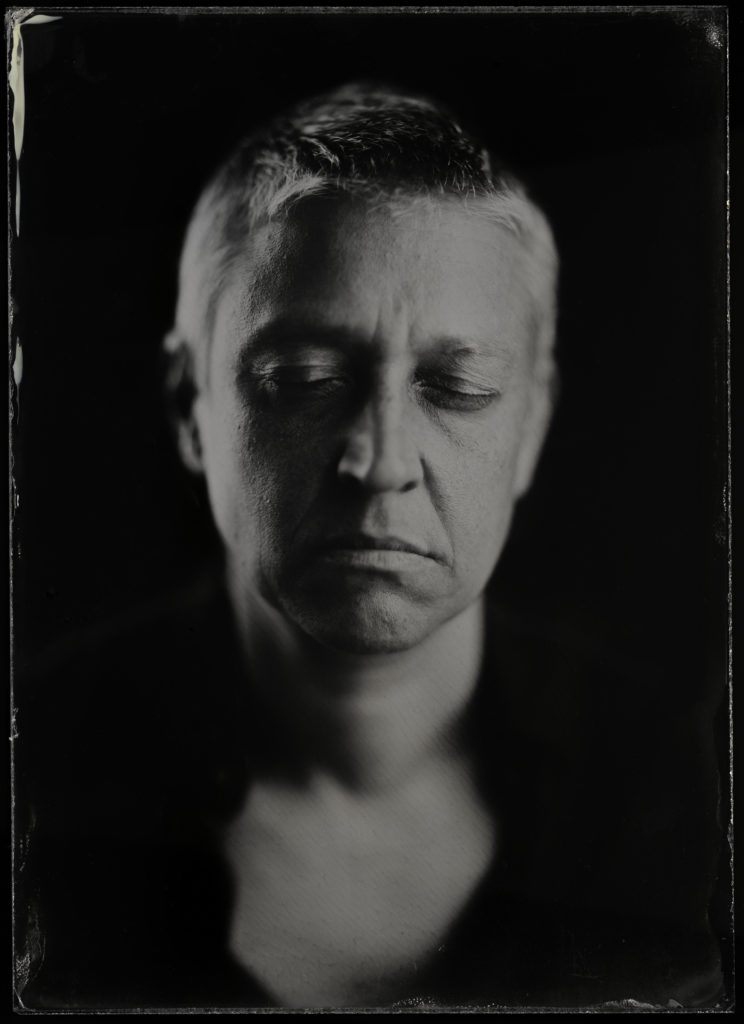
Žan Koprivnik
Anja Zag Golob
Anja Zag Golob, born in Slovenj Gradec in 1976, is co-founder and editor of the publishing house VigeVageKnjige and lives as an author, translator and publicist in Maribor. She has published four volumes of poetry in Slovenian so far. The first to appear in German translation was the volume “ab und zu neigungen” (hochroth Vienna, 2015) and the joint volume with Nikolai Vogel written in German: “Taubentext, Vogeltext” (hochroth Munich, 2018). “Anweisungen zum Atmen” (2018) was her first book publication with Edition Korrespondenzen.
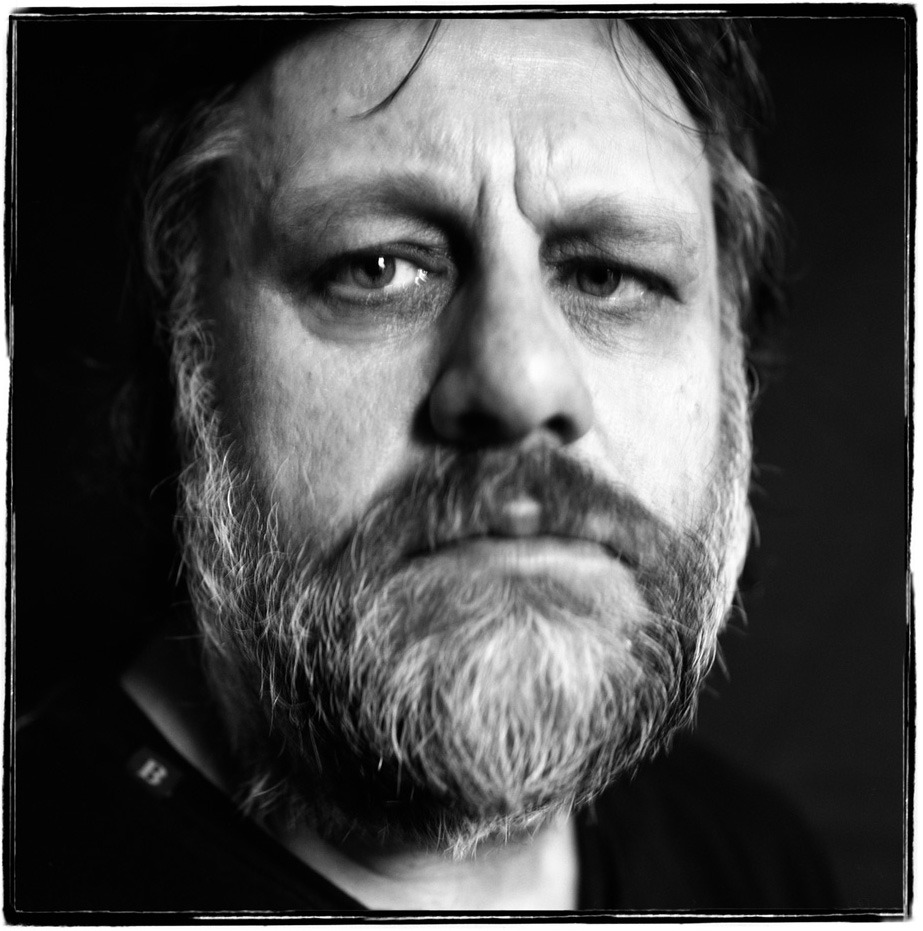
Slavoj Žižek
Slavoj Žižek is a Slovenian philosopher, cultural theorist and public intellectual. He is international director of the Birkbeck Institute for the Humanities at the University of London, visiting professor at New York University and a senior researcher at the University of Ljubljana’s Department of Philosophy.